

Key Questions to Ask Your Speech Pathologist Before a Therapy Session
The decision to see a speech-language pathologist is never an easy one to make, but it’s always in the best interest of the patient. Early intervention for children as young as the age of three can make a difference in the coming years.
Once you’ve decided to see a speech-language pathologist, you probably have a lot of questions! So what are some great questions to ask before your first therapy session? How do you know if you’ve found a stellar speech-language pathologist?
Keep reading to find out these answers to these questions and more.
What is A Speech-Language Pathologist?
Speech-language pathologists work with both adults and children who have trouble speaking clearly and other communication disorders. They also can diagnose and assess those who suffer from speech problems.
Some issues speech-language pathologists work with are:
- Communication sounds
This is not an exhaustive list, as a speech-language pathologist might work with a variety of communication disorders.
Seven Questions to Ask Before Your Therapy Session
If you’ve never seen a speech-language pathologist before, you might be curious about what to expect. Here are some questions to address.
1. Credentials
Before you select any type of medical professional, you want to scope out their credentials. Things like:
- How long have they been in practice
- What degrees they’ve earned and any certifications or licensing
- What type of patients do they see
- Are they certified by the American Speech-Language-Hearing Association or ASHA
- Are they a specialist in any area
- What is their approach to speech therapy
- Do you work individually or on with a team
- What has been your experience with people who suffer from a specific speech impediment
Questions like these help you develop an overall picture of the therapist, their education, and experience in the field.
Nearly any therapy you attend will have fees or cost associated. The best thing to do is to ask the therapist what their fees are and if they accept insurance.
Insurance companies will vary across the board as to how they cover any type of speech therapy. Some may cover it fully, but typically there are limitations. Get in contact with your insurance company to find out the specifics.
It’s also possible to work out a payment arrangement with the therapist at the time. Ask them when fees are due and how they take payment. Discuss your unique situation with them to see if you can come to a payment agreement if you’re having financial difficulty.
3. Contact Information
It’s important to know how to contact the therapist if you need to, especially if you have more questions or a need. Find out their preferred method of contact – email, texting, calling – and write down numbers in your phone or write them down in a way that’s easy to remember and accessible.
4. Session Environment
Coming into a new office or clinic can be a little uneasy, especially for children. They may feel scared or anxious in a new environment and be hesitant to participate in therapy because of it.
If possible, see if you can visit the office or clinic first to test the waters. Ask your therapist if this is appropriate and possible.
Don’t be afraid to ask questions while you’re there: What will the sessions be like? Can you watch or should you wait in another area? How long will the therapy session take?
When someone decides to enter speech therapy, the therapist will assess them first and then write out a plan for treatment complete with goals they wish to accomplish.
Once the therapist knows and understands the needs of the patient, you can ask about these specific goals. Questions like, how does this practice help to reach the goal, or how did you decide this treatment is right for the patient. Staying curious about why certain techniques are practiced during therapy gives you insight so you can practice at home.
5. How Can I Support?
Especially for a child, parental involvement is key to therapy success. It’s important to reiterate and practice skills learned during a therapy session in real life. This way, the skills stick and the child can improve.
Asking your therapist how you can support your child (or another adult!) outside of therapy walls is critical. Be sure to inquire about what resources , techniques, or other methods you can be implemented at home.
Your therapist will likely be enthusiastic about this and offer plenty of ideas because it shows you take therapy, and skill-building, seriously. They may even recommend group therapies or support groups outside of one-on-one time.
6. Length of Therapy
Because each patient’s challenges differ, the length of therapy will vary from person to person. This means that one patient may be in therapy for a few months, while some therapy sessions can last several years.
In the beginning, it’s hard to assess exactly the duration of the therapy; much of it depends on the patient, their specific case, and how well they improve. Severe cases may take longer, and those who resist therapy, or do not respond well, will likely have a lengthier time.
7. Progress
You don’t want to be attending therapy without knowing if it’s working. Be sure to inquire about how the therapist communicates progress with you, such as writing up a progress report or chart, to document changes during therapy sessions.
Seeing A Speech-Language Pathologist
Your first therapy session can be a little intimidating and nerve-wracking, but by asking the right questions and finding the right therapist, you can have a sense of calm and preparedness.
Are you searching for a speech therapist? We’ve got you covered! Visit our scheduler today or click the button below for a free consultation.


Preparing for Treatment: Important Questions to Ask Your Speech Therapist

There are many reasons people seek professional help from a speech-language pathologist, or speech therapist. Some of these can include:
You’ve noticed your child has struggled to reach developmental milestones appropriate for their age.
You’ve received a recommendation for speech therapy from your primary care physician, ENT, pediatrician, or other specialist.
You have a lingering speech or language issue that was never properly treated in childhood, or has worsened over the years.
You or a loved one need rehabilitative care after a stroke, injury, or other medical diagnosis affecting communication or swallowing.
Regardless, you'll want to be informed and prepared when starting speech therapy. While licensed speech-language pathologists are trained, qualified, and experienced in treating a range of speech and language issues, it’s important to remain proactive in asking the right questions. This will help you feel comfortable and confident in your treatment decision, and establish a strong relationship with your speech therapist.
Before starting treatment, here are some important questions to ask your speech therapist .
The logistics of speech therapy
Where will speech therapy sessions take place.
This may sound obvious, but it’s important to realize that effective speech therapy can be delivered in a variety of settings. That includes clinics, hospitals, outpatient centers, schools, your home, and online via video calls . Make sure you’re crystal clear where therapy will be delivered. And if you're receiving speech therapy virtually, make sure you have easy access to the video conferencing link (and bookmark it!).

What appointment times are available?
Like learning any new skill, speech therapy takes practice and reinforcement. Make sure to ask about your speech therapist’s availability and find a time that fits with your work and school schedule. Many families want to receive services during non-traditional hours, like evenings and weekends. If this describes your situation, find a speech therapist that can accommodate your preferred schedule.
How can I cancel or reschedule sessions?
Kids get sick, work meetings pop up, and life happens! What’s important is that you understand and are comfortable with your therapist's policy. Make sure to ask your speech therapist for these details before starting treatment.
How much does speech therapy cost?
There are a number of ways speech therapists and companies charge their clients. Some charge a flat rate per session, some use a subscription-based model, some charge additional fees for an evaluation, etc. The last thing you want is a surprise bill. Make sure you thoroughly understand your speech therapist’s pricing model and all associated costs, as well as when payment is due and how it should be submitted. If you have insurance coverage , this can lead to a host of additional questions. Every insurance provider is different, and many have restrictions on what diagnoses are covered, how many sessions they’ll allow, and how their reauthorization process works. Make sure to call your insurance company to get all your questions answered.

Speech therapist credentials
Before choosing any medical professional, it’s important to do your research. This is especially important with speech therapy because it covers such a broad scope of services and diagnoses. You want to find a qualified professional specialized to your area of need. Some questions to consider include:
How long they’ve been practicing speech therapy
What types of degrees, certificates, and licenses they have
Whether they’re certified by the American Speech-Language-Hearing Association (ASHA)
What types of patient populations they typically work with

Speech evaluation
Treatment typically begins with your speech therapist performing a thorough and comprehensive evaluation . Evaluations are used to conduct a variety of tests, measure communication skills, and identify speech and language challenges. Information gathered during the evaluation is needed to develop a personalized treatment plan best suited to your needs.
Before your evaluation, ask your speech therapist what tests will be performed, the length of the evaluation, and how the information will be used.

What speech therapy sessions look like
Your role in speech therapy as a parent or caregiver
Most people receive speech therapy once or twice a week. However, as mentioned, improving communication skills and regaining normal speech function requires constant reinforcement. While your speech therapist will provide valuable strategies, cues , and techniques while in-session, these lessons must be practiced on your own time to achieve the most progress. Ask your therapist how you can support your child or loved one outside of the session, and incorporate lessons learned throughout your daily routines. This can include at-home exercises, as well as simple language-building activities you can do during mealtime, before bed, while brushing your child’s teeth, and more.

How to contact your speech therapist
During speech therapy, questions will naturally pop up. Maybe you’ve noticed your child exhibiting a new behavior or struggling with communication. Maybe you have questions about an at-home exercise or need to reschedule your session. For some families, their therapist’s responsiveness is an important factor. Ask your therapist what their comfort level is responding to questions outside of therapy.
What happens after speech therapy ends?
At some point in your speech therapy journey, you or your child will “graduate” from services. Your speech therapist will conclude that you’ve reached necessary milestones or skill proficiency, and recommend that active speech therapy can end or be held less frequently. When that happens, we want to ensure that progress doesn’t regress. Ask your therapist about maintenance strategies to ensure you retain as much information and skills as possible.

Discuss your communication needs with a speech therapist for free
More from tips and resources.

Watch learning jump (leap! spring! hop!) from your sessions into the real world.

Learn more about All topics

Questions to Ask Your Speech Therapist
To the average person without much knowledge about communication disorders, speech therapy can be a relative unknown – that is, until you or a loved one have a need for such services.
While it can be overwhelming to dive headfirst into a new diagnosis or medical problem, speech-language pathologists (SLP) are trained to help you understand and feel more comfortable about a treatment plan and moving forward. To help provide more information on the ins and outs of speech therapy, we spoke with Dr. Jessica Galgano, executive director and founder of Open Lines Speech and Communication, to explore questions a patient should ask their SLP when deciding on a plan of care.
When Is Speech Therapy Needed?
A speech-language pathologist is a licensed professional who specializes in the assessment, diagnosis, and treatment of a full range of speech, language, and swallowing disorders.
Speech-language pathologists work with people across the lifespan – from infancy through end-of-life care – to support and enhance a large spectrum of feeding, swallowing, and communication needs.
You may need speech therapy if you experience difficulty with any of the following:
Speech/Speaking
- Articulating sounds correctly and easily
- Speaking fluently without stuttering , tension, reformulations, blocks, or repetitions of sounds or words
- Speaking without an accent or with an accent people can understand
- Public speaking and delivery
- Voicing for long periods of time (become easily fatigued)
- Voicing without experiencing pain and tension in your larynx
- Vocal expression through pitch and loudness change
- How high or how deep your voice is
- Good breath support when talking (not running out of breath)
- Speaking with healthy vocal quality (voice that is not hoarse, breathy, strained, shaky, or rough)
- Getting your voice loud enough to be heard
Language, Literacy and Communication
- Understanding what others are saying 1:1 or in a group
- Comprehending written text
- Following directions
- Understanding and expressing humor
- Finding the words you want to use when you want to use them
- Sharing thoughts, ideas, and personal stories
- Staying on topic
- Using appropriate grammar when speaking or writing
Cognitive-Communication
- Holding on to details and multiple pieces of information
- Memory recall
- Organizing thoughts and ideas for speaking and writing
- Filtering out extraneous information
- Paying attention and concentrating
- Problem solving and judgment
- Decision-making and verbal reasoning
Social-Communication
- Initiating, maintaining, and transitioning topics of conversation
- Using greetings, expressions, and social exchanges
- Understanding non-verbal aspects of communication, including body language, facial expression, and tone of voice
- Perspective taking and point of view
- Understanding and navigating social contexts
Feeding and Swallowing
- Chewing all types of food consistencies with ease and efficiency (no pocketing of food in mouth; no residue of food leftover after eating)
- Drinking and eating safely without coughing or clearing the throat
- Drinking and eating without shortness of breath or episodes of choking
- Maintaining adequate nutrition and hydration
- Enjoying meals and eating
Who Needs Speech Therapy?
Anyone who is interested in help to enhance or improve any aspect of their speech, communication, or swallowing would benefit from speech therapy services. Speech language pathologists work with people of all ages and all abilities.
Integral to the speech therapy role is education and training partnerships with families and medical and educational care teams, when appropriate, to ensure everyone involved in a person’s care feels confident and competent providing communication and feeding/swallowing support.
Speech Therapy for Infants
Some infants and children under 3 years of age require early intervention to support foundational feeding/swallowing and pre-linguistic and early communication skills. Difficulties may be due to organically based issues, such as Down’s syndrome or Prader Willi syndrome. However, many infants who do not have underlying medical issues may also benefit from intervention and may simply need a quick, intensive boost of support to jump start their development and provide parents with the education and support they need to help their child thrive.
Speech Therapy for Children
Many school age children benefit from speech, language, and literacy intervention for a variety of needs.
Toddlers may need help with early communication skills to help them better meet their needs. Speech and language therapy for toddlers help children develop and master foundational language skills they will later use in life and in school to learn new information, reason, and make decisions.
School-aged children might benefit from articulation therapy to help them produce sounds and words with greater clarity and fewer requests for repetition or clarification, which can be embarrassing and frustrating. Other children benefit from work targeting attention, organization, and language comprehension and use, so they can communicate and perform well at home and at school. Some children need help to improve their voice and loudness control, while older children may have more of a need to learn to use speech, voice, and loudness for public speaking demands.
Most importantly, children can benefit from exercises to foster communicative confidence so they can realize themselves as strong, fluent communicators. Effective therapy helps children express themselves in a way that is authentic and helps them tell their stories, express their ideas and share their knowledge in an organized, coherent, and cohesive manner.
Speech Therapy for Adults
Adults seek speech therapy to address a number of cognitive, speech, voice, swallowing, and communication needs. Commonly, speech, language, and cognitive-communication rehabilitation services are required following a traumatic brain injury or stroke to strengthen and retrain various issues related to swallowing, talking, understanding, reading, writing, attention, and memory.
Many adults with neurological conditions, including Parkinson’s Disease, cognitive fog or decline, Down’s syndrome, Abductor-type Spasmodic Dysphonia, or Essential Tremor, benefit from speech and language intervention to slow or prevent decline in motor-speech, voice, and cognitive-communication functioning. Therapy can significantly improve a person’s confidence and desire to communicate as well as their ability to more fully participate in their life!
Those who rely on their voice professionally, including television show hosts, social media celebrities, actors, singers, voiceover artists, attorneys, professors, and business professionals, or those who wish to enhance their delivery also benefit from the services of a speech therapist. Therapists with experience and a specialty in this area will provide expert coaching and training to optimize speech and voice for greater ease, comfort, quality, clarity, and endurance when speaking and to maximize communicative impact.
When to Start Speech Therapy?
In general, the sooner one begins a program to help them change, the more quickly one will potentially make gains and experience results. However, it is never too late to start speech therapy !
If you have any questions or concerns regarding any aspect of your or your loved one’s speech, communication, or swallowing abilities, you should contact a licensed, professional speech-language pathologist as soon as possible. Your SLP will listen to your concerns and help guide you to a solution.
How Long is a Speech Therapy Session?
Length of therapy sessions depend on many factors, including the following:
- Type, nature, and severity of medical and treating diagnoses
- Underlying theories of cognition, learning, motor skill acquisition, and neuroplasticity that guides intervention
- Individual goals and needs
Sessions can range from 30 minutes weekly during maintenance stages to more than three hours daily for more intensive programs. Change and progress is intricately tied to principles of motor learning and neuroplasticity and require intensity, repetition, and saliency! The main takeaway? The more you put in, with the right guidance, the greater your gains!
Speech Therapy Services at Open Lines ®
At Open Lines ® , every treatment plan begins with a one-on-one, individual evaluation with a licensed speech language pathologist who will take you or your loved one through a series of diagnostic examinations to capture a holistic and in-depth understanding of the unique set of needs, strengths, and goals that bring you to Open Lines for support.
With your collaboration, results of this evaluation will help your Open Lines ® team develop a personal plan of action with tailored exercises developed to help you optimize your communication or swallowing skills and help you experience a positive outcome.
If you’re struggling with communication difficulties, it’s time to turn to Open Lines ® . Contact us via phone ( 212-430-6800 ), email [email protected] , or by filling out our convenient contact form . Improve your communication skills and unlock your potential with Open Lines ® Speech and Communication in New York today!

Understanding your child’s speech and language development can often feel overwhelming. If you’re concerned that your child is experiencing…

After a stroke, one of the most frustrating and impactful challenges that many encounter is difficulty with speech and communication. The good…
Get in Touch With Open Lines®

Schedule a free phone consultation
Prospect Kids, LLC | Blog

Questions To Ask Speech Therapist
When your child experiences difficulties with speech or language development, seeking professional help from a speech-therapist becomes a natural step. However, navigating this new territory can be overwhelming. You might wonder: what questions should I ask a speech therapist to ensure my child receives the best possible care? This guide will equip you with essential questions to ask during your initial consultation and throughout your child’s speech therapy journey.
Unlock your child’s communication potential with our expert Children’s Speech Therapy services! Click here to schedule a consultation and start the journey towards clear, confident speech.

What Questions Should I Ask a Speech Therapist?
Here are some key questions to get you started:
What is my child’s prognosis based on the initial evaluation?
Asking this question provides insight into what the therapist anticipates in terms of therapy outcomes. Understanding your child’s starting point and potential progress can help manage your expectations and focus your support.
What are your credentials and experience?
Confirm that the speech therapist has the necessary qualifications and experience, particularly with children and speech challenges similar to your child’s. Knowing their background can give you confidence in their ability to help your child improve.
What are some realistic goals for speech therapy?
Discussing specific and measurable goals helps ensure that you and the therapist are aligned in your expectations and strategies for your child’s development.
How much experience do you have with this particular speech disorder?
A therapist’s familiarity with your child’s specific challenges can significantly impact the therapy’s effectiveness and personalization.
What can I do between sessions to support my child?
Active parental involvement can reinforce therapy lessons and help your child practice new skills in different settings, fostering faster improvement.
How long will my child need to be in speech therapy?
Knowing the anticipated duration can help you gauge the commitment required and monitor progress over time.
What forms of payment do you accept? Can I contact you outside of my child’s therapy sessions?
Clearing up these practical details upfront avoids surprises and establishes a line of communication for any questions or concerns that may arise.
What happens when my child finishes their therapy?
Planning for the end of therapy ensures that you know how to support your child’s continued development and communication success.
By arming yourself with these essential questions, you can ensure that your child’s speech therapy journey is as effective, transparent, and supportive as possible. Remember, you are a crucial part of your child’s success, and being well-informed enables you to advocate for and support your child’s developmental journey every step of the way.
- Members Sign Up
- Members Login

- Toddler Talk 2.0
- Toddler Talking 2.0
- Preschool Talk 2.0
- Late Talker
- Speech Disorders
- Language Disorders
- Reading and Writing
- Development
- Speech Therapy
- Read, Talk, Play Tips!
- Speech-Language Activities
- Story Companions
- Baby Activities
- Toddler Activities
- School-Aged Activities
- General Speech-Language
- Articulation
- WH Questions
- Social Language
- Receptive Language
- Grammar Games
- Story Grammar
- Speech Therapy Toys
- Holiday Activities
- Free Home Therapy ideas
- High Frequency Words
- Teletherapy
- Augmentative Alternative Communication (AAC)
- Documentation
- Back To School
- Spanish Materials
- Bilingual Development
- Bilingual Therapy
- Accent Modification
- Zero Prep Articulation
- Questions To Ask Speech Therapist
What to look for in a speech therapist will depend on the personality and needs of your child. Below, I outline key questions to ask a speech therapist before you start any therapy program.
These questions apply more to private practice, hospitals, and clinics than schools. Within the school system (early intervention, early childhood, and school), you may have less choice.

1. Logistics
First things first, consider all the logistics. These simple considerations can make or break a therapy program.
- Location: Pick a therapist that lives in your area. Make sure it is convenient to get there. There will be fewer cancellations on your part.
- Money: Are you going to pay out of pocket? What are the fees? Does your insurance cover anything? Check with your insurance first!!
- Hours of Operation : What are the speech therapist’s hours? Do they work for you?
- Cancellation Policy: Cancellations happen. Read the policy and be comfortable with it. However, don’t plan on cancelling too much. How will your child improve?!
2. Credentials
It is important to ask questions about the speech therapist’s credentials and experience such as:
- Are you ASHA (American Speech-Language-Hearing Association) certified?
- Are you licensed?
- How many years of experience do you have?
- What ages and disorders have you worked with?
- Do you have any areas of expertise?
- Most important : What is your therapy’s philosophy?
3. Private or Public?
Investigate options in your area. Start at your pediatrician’s office and/or your local public school. Word of mouth is a powerful tool too!
- Benefits of private clinics: You have more control. You can pick your time, place, and therapist. Parent involvement is prioritized.
- Cons of private clinics: Expensive. Insurance doesn’t always cover services
- Benefits of schools: Services are free. Goals relate more to school curriculum. Many professionals are on your child’s team.
- Cons of schools: You have less control over who is your child‘s therapist. It is harder to qualify for services. Your child may be seen in larger groups for less amount of time.
Consider these factors and ask around before deciding, but don’t wait too long. You can always change your plan!
4. Parent Involvement
Speech therapy is changing for the better. Research now shows how crucial parent involvement and daily practices are for progress. Below are questions to ask a speech therapist regarding this:
If your child is under 5 years old:
- How are sessions run?
- Is there a home program? What does it comprise?
- How frequently do I receive progress reports?
- May I watch sessions?
- May I be in the room so I can learn techniques to practice at home?
If your child is over 5 years old:
- Are you willing to regularly contact my child’s teacher to collaborate on progress and goals?
- How often are goals updated?
- How do you measure progress and need for further assessment?
5. Last considerations
Remember, you, the parent, will do most of the therapy at home. Find a speech therapist who will teach you EASY techniques for working with your child at home.
Be comfortable with the speech-language pathologist. Make sure you feel comfortable expressing your needs, worries, and concerns. Communication between therapist and parent is IMPORTANT!!
Write down questions to ask the speech therapist before you go.
Go with your gut. You are the expert on your child. Don’t forget that!
Further Questions...
Email or contact us with any further questions. We are happy to help!!
- What is speech therapy all about?
Session expired
Please log in again. The login page will open in a new tab. After logging in you can close it and return to this page.

- How It Works
- Provider Hub
- Testimonials
- Payment Options
- SpeechEasy Store
- Current Promotions
- How it Works
- Getting SpeechEasy PD
- Request Info
- Schedule an Appointment
Questions to Ask the Speech Therapist
When it comes to stuttering, treatment is very different than that of other speech therapies. It is important to work with a therapist who has specialized training and experience. As a parent of a child who stutters, do your research, ask other parents and professionals for referrals, and speak with several therapists before choosing one. Here are a few basic questions that you should ask before choosing a speech therapist:
How Will You Choose A Therapy Approach for My Child?
There are many possible forms of stuttering therapy. Experienced therapists develop individualized therapy based on the unique needs of each case. You should be well-informed of the therapy approach that will be implemented with your child as well as the rationales behind it. Effective treatment will encourage the child to speak freely without tension or fear. Too large of an emphasis on fluency may end up causing the child to feel pressured, therefore creating more struggle.
What Will My Family’s Role Be in Treatment?
Parents should always be involved in their child’s therapy. Keep in contact with your child’s therapist regularly. It is also helpful if the therapist includes other people in the child’s life, such as teachers or other professionals. A great therapist will provide specific strategies that parents can use to help their child as well as support for family members who may express confusion.
What Can I Expect?
Starting therapy can raise many questions among parents. The therapist should provide you with a sense of how the frequency of therapy will be determined, what the goals of therapy will be, and how progress will be measured. While it may not be possible to determine how long your child will need to attend therapy sessions, the therapist should be able to provide reasonable expectations for progress.
SpeechEasy is a combination of proven technology and techniques which can be used to reduce stuttering. Worn in one ear and similar in appearance to a hearing aid, SpeechEasy has helped thousands increase their ability to communicate effectively and confidently. The program that comes with every SpeechEasy is supported by a team of fluency professionals who truly care about your success. Contact us today!
Spring savings: $750 off Comfort Fit and CIC devices!
- 3515 W. Moreland Road Willow Grove, PA, 19090
- [email protected]
- 215-659-5599

10 Questions To Ask Your Speech-Language Pathologist Before Treatment
- Nov 8, 2018
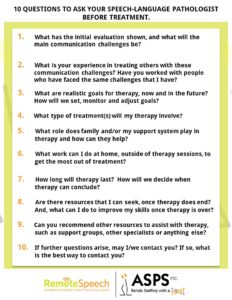
Click on this image to download and print this questionnaire.
1. What has the initial evaluation shown, and what will the main communication challenges be?
This question is imperative, to ensure that both patient and provider are aligned to the challenges ahead. Take notes to ensure that you understand these challenges clearly).
2. What is your experience in treating others with these communication challenges? Have you worked with people who have faced the same challenges that I have?
In most instances, your Speech-Language Pathologist will be able to describe their experience in working with patients with similar challenges. Remember, every case is unique. While your SLP can describe their experience in treating similar cases with generalizations, they cannot compare your circumstance with another patient, or disclose confidential information about other patients’ treatment programs.
3. What are realistic goals for therapy, now and in the future? How will we set, monitor and adjust goals during our therapy program?
Your SLP should be able to clearly define the goals for treatment, along with a plan to adjust those goals based on progress made. Keep in mind, that these are just projections, and may vary by individual.
4. What type of treatment(s) will my therapy involve?
The goal of this question is to ask you SLP to identify some of the treatment practices that you should expect during the course of your therapy. This is a broad overview. Keep in mind, treatment is often highly-responsive based upon the needs and progress made by the patient. Your SLP should keep you up-to-date on progress made, and keep you notified of any needs to modify your treatment program, should one arise.
5. What role does family and/or my support system play in therapy and how can they help?
Whether you are a parent or patient, family and/or your immediate support system can play a supportive role throughout the course of your therapy program. Ask your SLP to provide suggestions.
6. What work can I do at home, outside of therapy sessions, to get the most out of treatment?
With this question, your SLP should provide you with a description of what you should expect with your commitment to therapy as a whole, including tasks that might be required to perform at home, outside of your therapy sessions. This provides a good understanding of the commitment required to achieve your goals from the program.
7. How long will therapy last? How will we decide when therapy can conclude?
In most instances, your SLP will be able to provide an estimated time frame for your therapy’s duration. Keep in mind, however, that this is just an approximate time-frame. Be sure to ask your SLP what factors might extend your therapy program and if there are any benchmarks that should be observed to define progress.
8. Are there resources that I can seek, once therapy does end? And, what can I do to improve my skills once therapy is over?
When assessing your treatment program, understanding your responsibilities once treatment concludes is just as important as understanding the parameters while in treatment (both in sessions, and any “homework” assigned). Combined, this provides a comprehensive understanding of the complete expectations for your therapy treatment program.
9. Can you recommend other resources to assist with therapy, such as support groups, other specialists or anything else?
SLPs are a fantastic reference for supportive resources. Take advantage of any suggestions that they might have to make the most out of your treatment program.
10. f further questions arise, may I/we contact you? If so, what is the best way to contact you?
Additional questions may arise outside of your therapy sessions. Oftentimes, these questions can be posed during your next therapy session. Ask you SLP what their policy is for inquiries outside of treatment.
Click the image below to download and print a copy of this SLP Questionnaire
Click here to learn more about our telepractice – remote speech-language therapy, recent posts.

Understanding Autism Spectrum Disorder: Support and Understanding

Teletherapy and the Benefits of Online Therapy Games!

AI – English Language Secret Weapon?

Super Heroes or Super Overworked?

Teletherapy is Here to Stay!
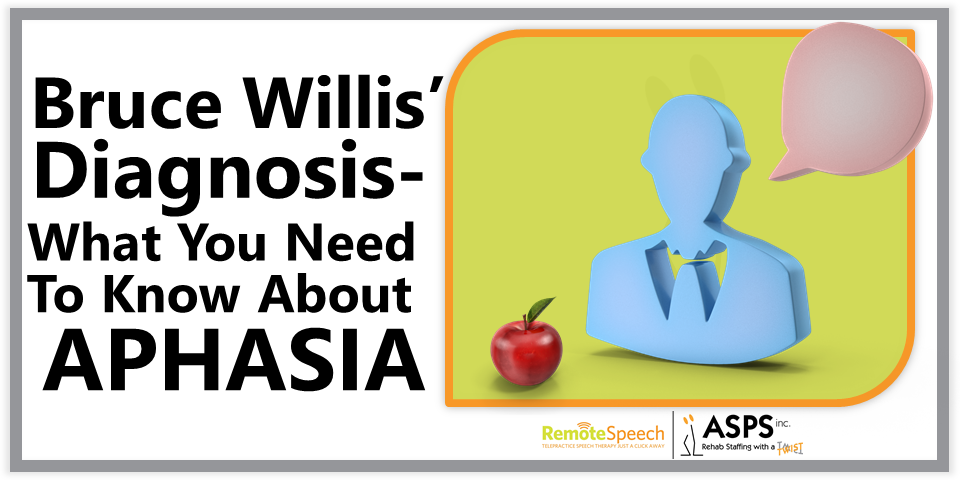
Bruce Willis’ Diagnosis – What you need to know about Aphasia
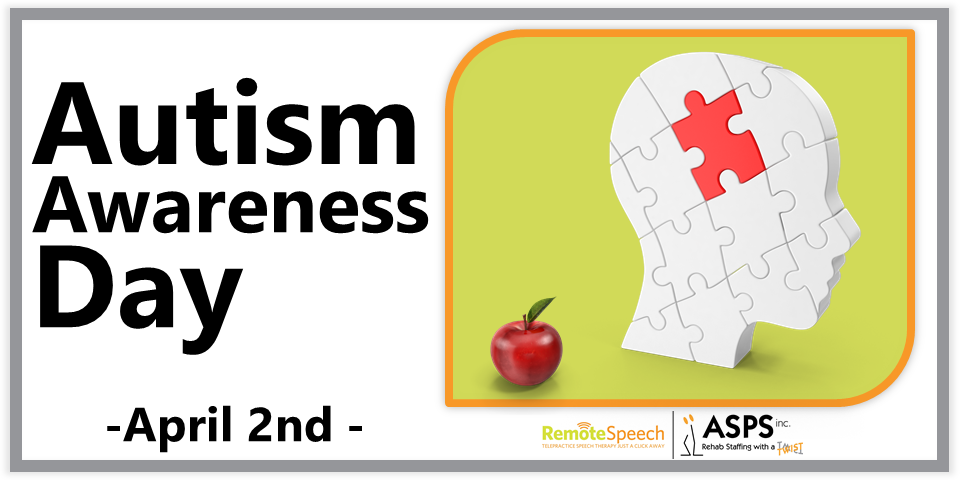
Autism Awareness Day April 2

Study Shows Impact of School Closures on Preschool Children During Covid-19

CDC Lowers Guidelines for Developmental Milestones

2022 Early Trends in Speech Language Pathology Amid Covid

Speech Language Pathology – An Attitude of Gratitude

SLP and Education Covid Resource Guide – Fall 2021
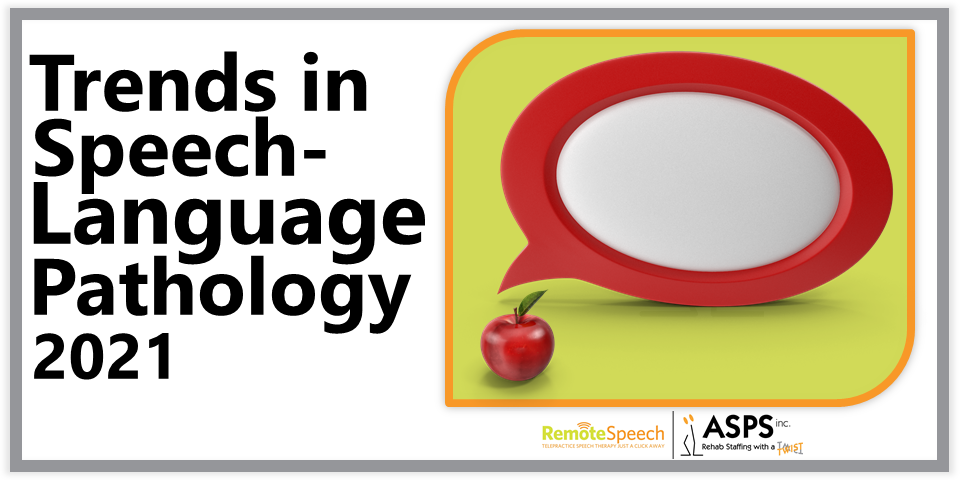
Trends in Speech-Language Pathology 2021

The National Landscape of Special Education

Media Kit 2021

Local speech pathology company highlights spectrum work amid coronavirus pandemic

Autism Awareness Month – Top 10 Leading Advancements to Watch in 2021
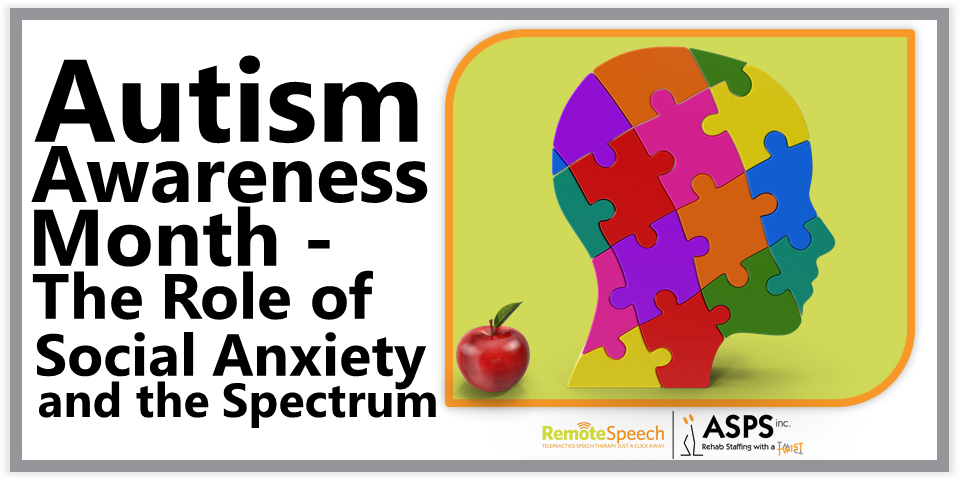
Autism Awareness Month – The Role of Social Anxiety and the Spectrum

In the News – Abington Speech Pathology Looking for Investors to Expand Its Teletherapy Product Nationally

In the News – Executives Impart What It Takes to Lead

Montco firm seeks investors to accelerate national expansion of new teletherapy product

Speech Therapy Adult Services Part 2 of 2

Speech Therapy Adult Services Part 1 of 2

In the News As Featured in CBS 8

RemoteSpeech Announces the Official Launch of VirtualTx

Adopting Telepractice in the Age of Covid 19

Ultimate Guide for Back to School 2020 – Part 2 -Educators
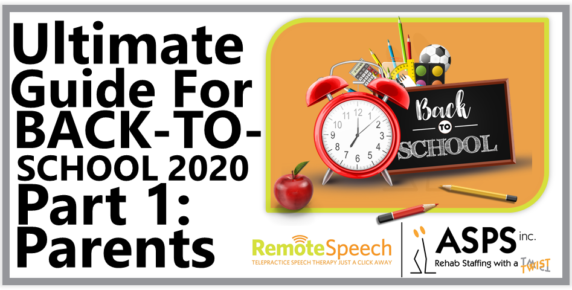
Ultimate Guide for Back to School 2020 – Part 1 – PARENTS

Ultimate Guide for Back to School 2020 – Part 2 -Educators
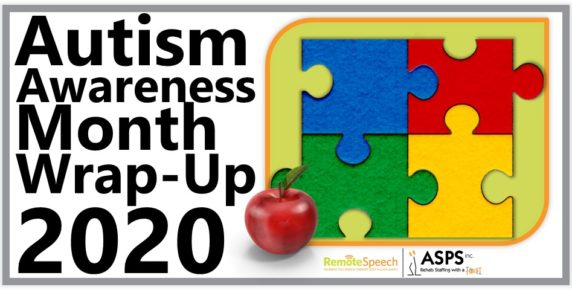
Autism Awareness Month Wrap-Up 2020

Keeping Your Kids on Track with Speech-Language Pathology
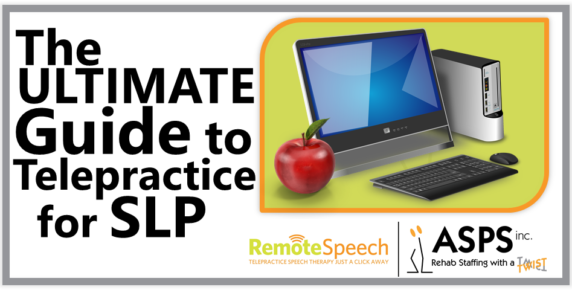
The Ultimate Guide to Telepractice for SLP

As Featured in World Health Net – Remote Telepractice Technology is Sparking a Speech Teletherapy Surge

Educators Fall Guide to Speech Therapy

Parents Fall Guide to Speech Therapy

As Featured in Thrive Global – Revolutionary Tech Platform Offers Families Speech Therapy Right From Home, School or Anywhere

Summer Fun with Speech Therapy – Part 2

Summer Fun with Speech Therapy – Part 1

Top Trends in Speech Language Pathology
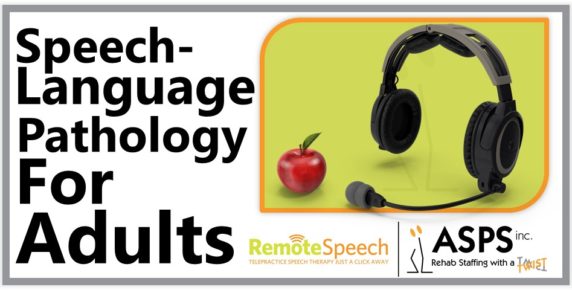
Speech Language Pathology for Adults
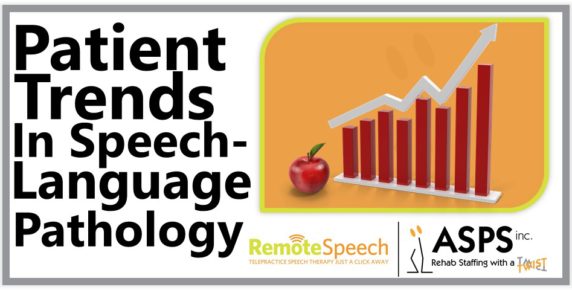
Patient Trends in Speech-Language Pathology
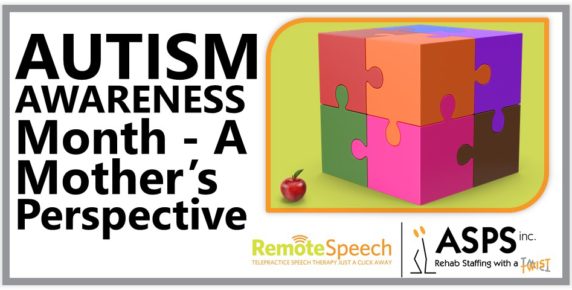
Autism Awareness Month – A Mother’s Perspective
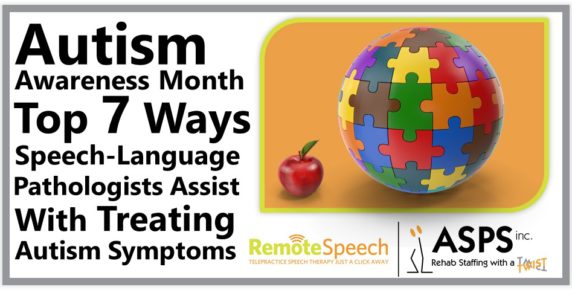
Autism Awareness Month Top 7 Ways Speech-Language Pathologists Assist with Treating Autism Symptoms
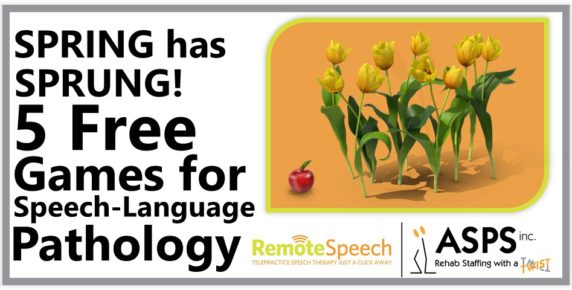
Spring Has Sprung 5 Free Games for Speech Language Pathology
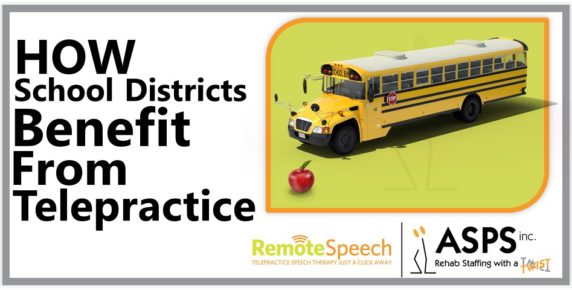
How School Districts Benefit from Telepractice
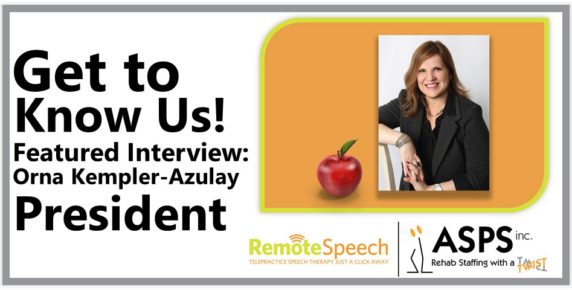
Get to Know Us Featured Interview Orna Kempler-Azulay
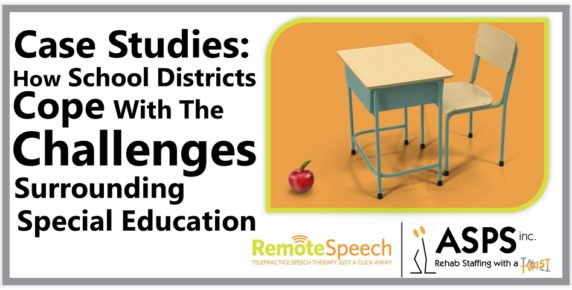
Case Studies: How School Districts Cope with Challenges Surrounding Special Education

Will You Be Mine? An SLP Valentine!
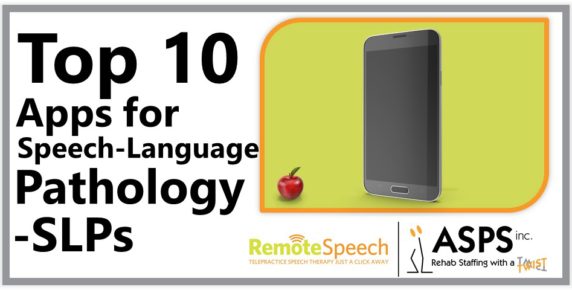
Top 10 Apps for Speech-Language Pathology – SLPs
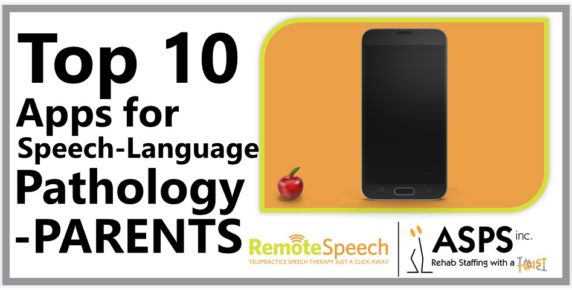
Top 10 Apps for Speech-Language Pathology – Parents
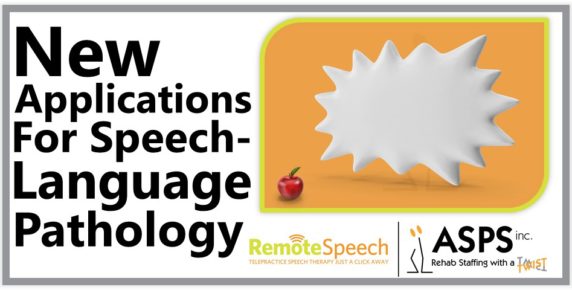
New Applications for Speech-Language Pathology
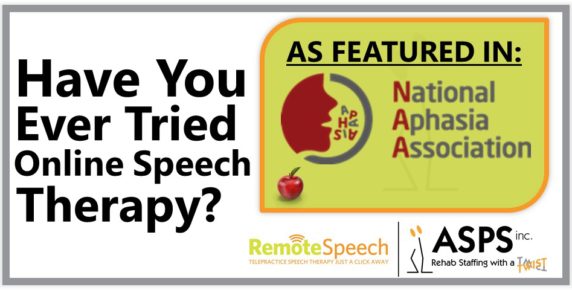
As Featured in National Aphasia Association – Have You Ever Tried Online Speech Therapy?

Top Trends to Watch In Speech-Language Pathology in 2019
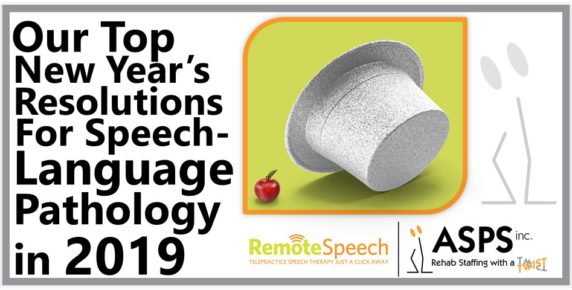
Our Top New Year’s Resolutions For Speech-Language Pathology in 2019

Speech Language Pathology – Twelve Gifts for the Holidays
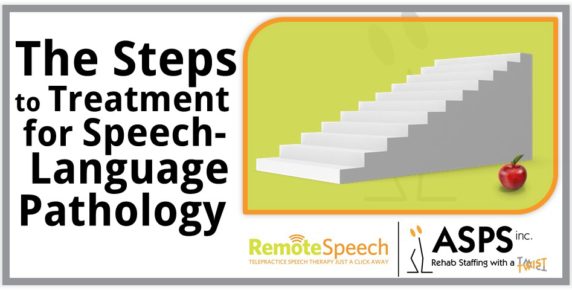
The Steps to Treatment for Speech Language Pathology
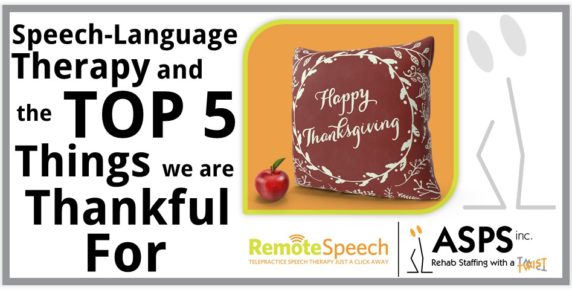
Speech-Language Therapy and The Top 5 Things We Are Thankful For.
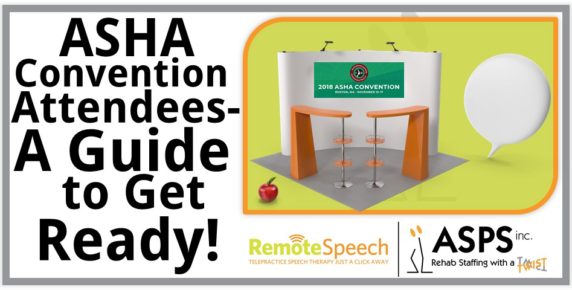
ASHA Convention Attendees – A Guide to Get Ready!
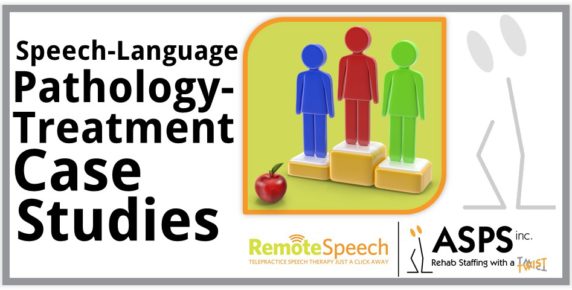
Speech-Language Pathology – Treatment Case Studies
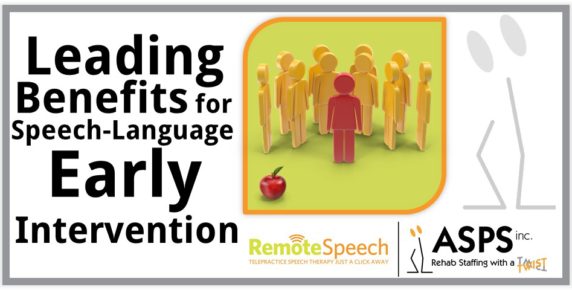
Leading Benefits for Speech-Language Early Intervention
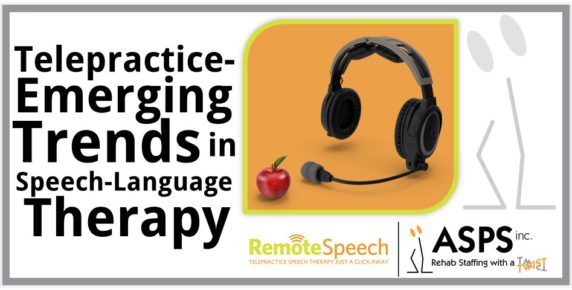
Telepractice- Emerging Trends in Speech-Language Therapy
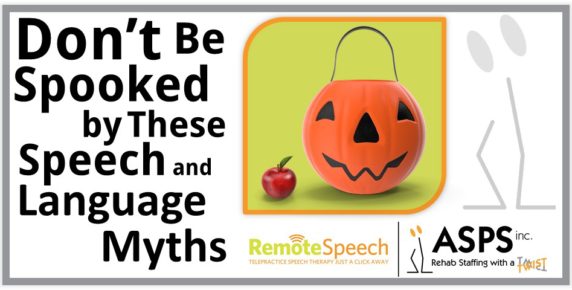
Don’t Be Spooked by These Speech and Language Myths
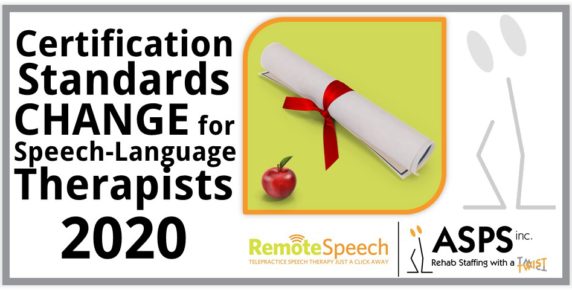

Certification Standards Change for Speech Language Therapists 2020
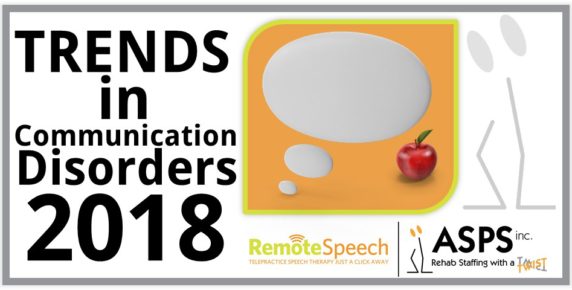
Trends in Communication Disorders 2018
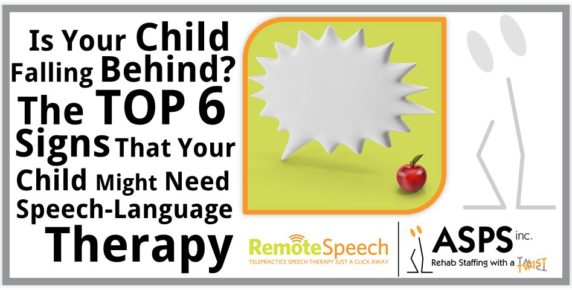
Is Your Child Falling Behind? The Top 6 Signs That Your Child Might Need Speech Language Therapy
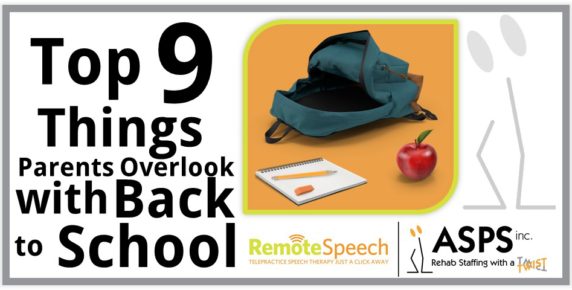
Top 9 Things Parents Overlook with Back To School

Orna Kempler-Azulay Featured on 98.1 WOGL’s Remarkable Woman with Marilyn Russell

RemoteSpeech Offers Therapy With Just a Click

Montco Speech Pathology Firm’s New Twist On Telemedicine

New Technology Offers Speech Therapy Right From Home

RemoteSpeech and Abington Speech Pathology Collaborate with CHOP Producing Exciting Results
Abington speech pathology services to remotespeech and beyond….

Orna Kempler-Azulay Recognized by Cambridge Who’s Who for Excellence in Speech Pathology
8 questions for new clients to ask their SLPs about speech-language pathology
What is speech-language pathology? And how does it help recovery from stroke or brain injury? Those are the basic questions clients have for speech-language pathologists at the beginning of care. But the answers to those questions may raise more questions, such as “How long will therapy last?” This post helps patients and caregivers understand the role SLPs play in the treatment of speech, language, and cognitive disorders. It closes with eight questions patients and caregivers may want to ask on their first visit in order to get the most out of treatment.
If you have had a stroke, brain injury or are living with dementia, you may have been referred to a speech-language pathologist (also known as an SLP). You may be wondering, “What is a speech-language pathologist?” or “How will it help me or my loved one with stroke or brain injury or dementia?” Beginning the rehabilitation process can feel overwhelming, and if you’re feeling like you have a lot of questions, you’re not alone. Speech-language pathologists are highly trained clinicians who assess, diagnose, and treat a wide range of speech, language, social communication, and cognitive issues in children and adults. At minimum, SLPs have master’s degrees. Their studies include coursework in anatomy, neuroanatomy, physiology, genetics, linguistics, psychology, human and language development, and more. So, know that you are in capable hands!
To help you get more out of your treatment, this article shares eight questions to ask your speech-language pathologist at the outset of care. But first we’ll lay some groundwork on how speech-language pathology can help you or your loved one.
How SLPs work: the initial evaluation
Overall, the job of a speech-language pathologist is (1) to properly diagnose each patient, then (2) to develop an individualized therapy plan to attain the highest level of function possible in areas such as speech, language, cognition, or swallowing .
Patient-centered care is the foundation of the rehabilitation process, so each person’s therapy experience will be different based on your goals and the skills you want to work on. Your clinician will look for your input as she/he develops the treatment plan.
In addition, to help with developing the plan of care, your clinician will do an initial assessment to examine different skill areas. In this assessment, some of the tasks may seem easy and some might be hard. The assessment is very important in understanding what areas should be focused on in therapy.
The evaluation may be comprised of informal and formal assessment measures. Formal assessments are validated through research and normed (standardized), so this can help the clinician identify if there are any cognitive, speech, or language areas that should be worked on in your SLP sessions. Some examples of assessments are:
- Language tests which look at different areas involved in listening, speaking, reading, or writing, such as the Boston Diagnostic Aphasia Examination , the Western Aphasia Battery, or the Boston Naming Test.
- Cognitive tests such as the Cognitive Linguistic Quick Test , the Repeatable Battery for the Assessment of Neuropsychological Status (RBANS), or the Woodcock Johnson Test of Cognitive Abilities, which assess different areas of cognition such as attention, memory, or problem solving.
- Speech tests such as the Frenchay Dysarthria Assessment, which will examine characteristics of speech including respiration, vocal quality, and articulation
- An oral mechanism evaluation, which assesses your articulators (the parts of your mouth that make speech sounds and help with swallowing)
- Swallowing tests such as a clinical swallowing evaluation, a Fiberoptic Endoscopic Evaluation of Swallowing (FEES), or a Modified Barium Swallow (MBS) Study to assess your swallowing function.
From this assessment, your SLP develops an individualized treatment plan. It will be based on evidence-based practice — the integration of clinical expertise, patient values, and the best and most up-to-date research.
How SLPs work: getting regular therapy
Your treatment with your SLP may involve a number of activities. These activities might be restorative , meaning that the goal is to regain lost skills by forming and strengthening connections in the brain. These activities might also be compensatory , meaning that you are working on building strategies that will help you function in your daily life. Here are some examples:
- Doing exercises to improve memory, such as using a log to improve recall of daily events
- Training in the use of environmental aids to assist with orientation
- Addressing cognitive skills in a functional context, such as preparing a meal or purchasing an item at the store — tasks that require multiple cognitive skills, including planning, and organization
- Learning how to self-monitor in the hospital, home, and within the community
- Activities aimed at strengthening your ability to remember word meanings and link them to the spoken and written forms of words, such as matching words to pictures, sorting words according to their meaning, and judging whether words have the same meaning
- Practicing naming pictures, judging whether words rhyme or not, or repeating words your therapist says
- Listening to or reading sentences or paragraphs
Speech Activities:
- Using strategies to make speech intelligible, such as practicing word lists, sentences, or paragraphs, or making conversation
Swallowing:
- Exercises that improves coordination, range of motion, or strength of your swallow muscles
- Practicing eating and drinking foods and drinks of different consistencies using safe swallow strategies
How SLPs work: coordination with your care team
To provide holistic rehabilitation, your SLP may also coordinate with others on your care team, such as doctors, case managers, and occupational or physical therapists. Your family may also be a part of your support team. In addition to informing your family members of the changes you are going through, your speech-language pathologist may give them ways to more effectively interact with you.
8 questions to ask at your first appointment with your SLP
Many clinicians will have you complete a history form before your first appointment. If you can’t fill out the form, they’ll go through the information with you in person. Some clinics also request that you send prior testing information along. That might include previous therapy for your disorder or hospital records of the event that led to your disorder. Often it’s helpful to bring a family member along who is familiar with your history and current levels of functioning.
The following are suggested questions to ask your SLP at your first appointment so that you get the most out of it:
- What has the initial evaluation shown? (And can you write down the main points so that I can look at them later?)
- What will my therapy involve?
- How will we set goals for my treatment?
- How can my family be involved in my therapy?
- How can I practice at home in between appointments, so that I get the most out of therapy?
- How long will therapy last? How will we decide when to stop?
- Is there anywhere I can go for more help once this therapy ends?
- What else can I do to maintain or continue to improve my skills once therapy is over?
Although it may all seem overwhelming, know that you are entering into the care of someone experienced in working with cognitive and communication disorders. Your SLP knows things are hard for you right now, and is there to help you make the rehab process as positive as possible.
Tackle your speech therapy goals, get top-notch support
Related articles, submit a comment cancel reply.
Your email address will not be published. Required fields are marked *
Constant Therapy Health
- Partner with us
- Constant Therapy
- Try for free
- Request a Demo
- Conditions we support
- For clinicians
- For patients
- For veterans
Support + Resources
- Printable Resources
- Testimonials
Join the Conversation
Love the blog
great info! thanks
I love your writing style genuinely loving this internet site .
Fantastic blog. You often publish a absorbing article. Thanks!
Comments are closed.
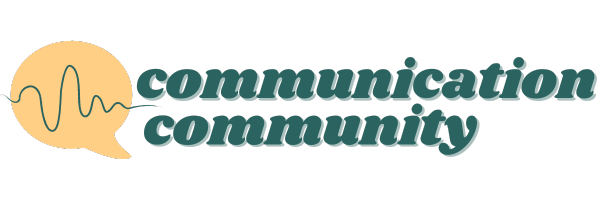
Why SLPs Should Use Questionnaires (with sample questions)
Parents, caregivers, and teachers should have opportunities to provide input about an individual’s skills when a speech-language pathologist (SLP) is completing a comprehensive assessment. This post covers what types of questions SLPs can ask parents, caregivers, and teachers.
There are many parts of a comprehensive speech and language assessment . What is required and what is included may vary depending on the setting the assessment is in (e.g. school, outpatient clinic), but typically there are a variety of informal and formal measures used.
The purpose of an assessment is to determine whether or not an individual has a speech or language delay or disorder, and if there is one present, how it can be addressed. While an SLP can administer formal, standardized, norm-referenced assessments, analyze speech and language samples, and provide dynamic assessment, they cannot be with an individual at all times of the day in order to see how they communicate across all contexts and settings. They also cannot look into a crystal ball and know the complete case history of an individual or what their teachers observe in class.
In order to obtain information on an individual, SLPs can use questionnaires or surveys to learn about the individual they are assessing.
When do you use questionnaires?
Questionnaires are most often administered before, during, and after the delivery of assessments. Parent, caregiver, and teacher involvement is an important part of completing an assessment.
Before the assessment:
Questionnaires can be helpful at many stages of an evaluation, though they are definitely necessary at the beginning of one, especially if the individual has never received speech and language services before. Before the SLP determines how they are going to assess an individual, they need some basic information on what the individual’s present level of performance is and what areas of concern there may be. They also need to know what languages the individual speaks and how they communicate. For example, if an individual is exposed to more than one language at home, a standardized assessment may not be the most appropriate assessment tool to use. If the information gathered indicates that an individual has complex communication needs and primarily communicates through augmentative and alternative communication (AAC) , the SLP will be able to better plan for an assessment of the individual’s skills.
A questionnaire can also provide information on specific areas of concern. The scope of speech-language pathology is large, so if an individual is receiving an evaluation because of concerns about their production of speech sounds , it will look different than an evaluation because of concerns about their use of language . Questionnaires completed beforehand can give the SLP a better sense of what diagnostic tools to pull to obtain the most efficient and comprehensive assessment results.
During the assessment:
Questionnaires may also be warranted in the middle of an assessment. For example, an individual may be referred for an evaluation due to concerns about their speech sound production, but while completing it, the SLP may notice a large number of disfluencies . The SLP may check in with someone who knows the individual better, like a parent or teacher, and ask them if they’ve noticed disfluencies as well. The SLP may decide to also assess an individual’s fluency skills to determine whether or not they have a fluency disorder (i.e., stutter/clutter).
After the assessment:
An SLP may complete an assessment and determine that an individual does present with a speech or language delay or disorder. At this point, they are likely going to develop a treatment plan for them and may ask for input on goals or areas of growth. Ultimately, it is the SLP who is going to write the goals and develop the treatment plan, but they should consult with others regarding what type of treatment an individual and their family desires. This may mean the type of AAC system an individual is going to use or the frequency/duration of services. If the individual is in school, the SLP may consult with the teacher about curriculum expectations or accommodations that may be most appropriate for the individual.

What types of questions should you ask?
Depending on the suspected area of concern, there are certain questions you may ask. It is important to touch on all areas of speech and language, but if there is a suspected fluency disorder you should ask specific questions related to stuttering/cluttering. If there is a suspected speech sound disorder, you should ask specific questions related to articulation and phonology. The following provides some questions you can ask, along with other topics to cover.
*Depending on the setting you are in, you may be able to find out some of this information on your own. For example, if you are in a school, you may be able to see what type of accommodations they have used, if they’ve received speech and language services in the past, or if they have passed prior hearing screenings.

General questions to ask parents/caregivers
These touch on some specific areas of speech and language, including speech sounds, pragmatic language, receptive and expressive language, fluency, and voice:
- Have they had speech and language services before?
- What languages are they exposed to at home/in the community?
- How do they primarily communicate with you? (e.g. sounds, gestures, verbal language)
- When did they first start talking?
- Approximately how long are their typical utterances?
- How much of their speech can you understand?
- What does their playtime look like?
- Can they follow specific directions?
- How often do you notice them getting stuck on certain words or repeating words/phrases?
- Is their voice typically softer, louder, or the same volume as others?
- What concerns do you have?
General questions for teachers
- How is their ability to access the general curriculum impacted?
- What accommodations have you provided them in the classroom?
- What accommodations might be helpful for them?
- Are there concerns about their participation in the classroom and interactions with peers?
- Are they able to follow directions?
- Are they able to complete assignments successfully?
- Do they ask for help if they need it?
Speech sounds (articulation/phonology): Common subtopics
-their intelligibility among familiar and unfamiliar communication partners
-awareness of speech sound errors
-sounds that are present
-sounds that are absent
-frustrations around communication due to speech sound errors
Receptive and expressive language : Common subtopics
Receptive language (understanding).
-following directions
-understanding vocabulary
-answering wh- questions (who, what, where, when, why)
-ability to understand what others are saying
-understanding what’s occurring in books, TV shows and movies
Expressive language (using)
-primary mode of communication
-words they use
-average length of utterances (e.g. 1-2 words, phrases, complete sentences)
-morphemes present/absent
-ability to communicate feelings, wants, concerns
Pragmatic language : Common subtopics
-understanding facial expressions/nonverbal communication
-understanding abstract/figurative language (for older students)
-play skills with others
-developing and maintaining peer friendships
-using an appropriate tone of voice
-participating in classroom activities/discussions
-working in groups/with others
Fluency : Common subtopics
-presence of disfluencies/not smooth speech
-types of disfluencies (blocks, repetitions, prolongations)
-rate of speech
-awareness of disfluencies
-impact of communication with others
-emotions related to fluency
-possible family history?
Voice : Common subtopics
-vocal quality
-volume of speech
-pitch of speech
-impact on communication
It would be impossible to name every question that should be asked that spans across all ages and areas of concern, but we hope this provides a good “jumping off” point for you as you develop questionnaires and checklists for others. As a parent/caregiver, this may provide some good insight as to what an SLP may be looking for when they are completing an assessment.
Check out our CASE HISTORY form for a fillable PDF that can be used before assessments!
You might also like.

Using AI to Enhance Speech Therapy Sessions

Data Collection in Speech Therapy: Why It's Important and Tips for Success
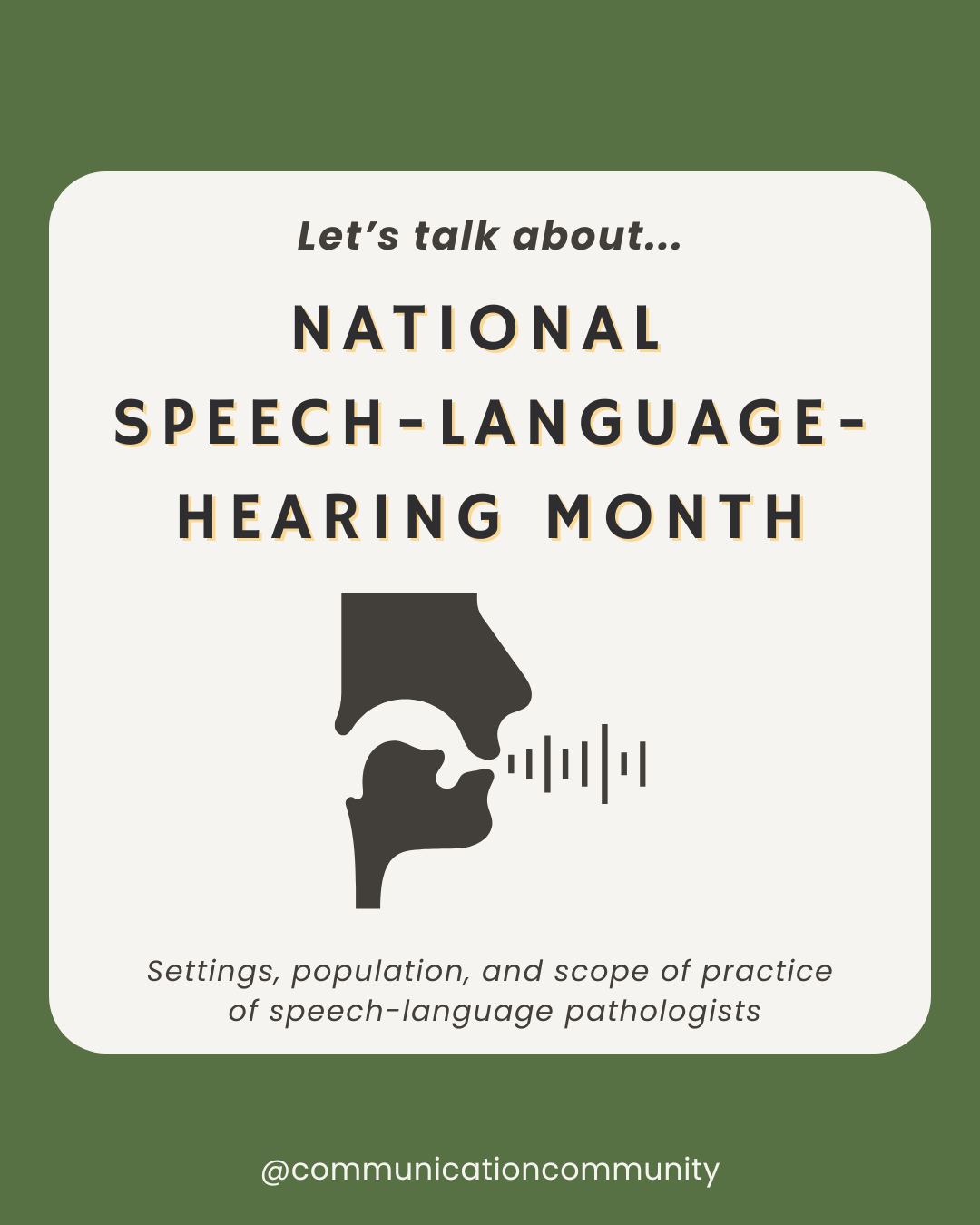
National Speech-Language-Hearing Month | What Does a Speech-Language Pathologist Do?
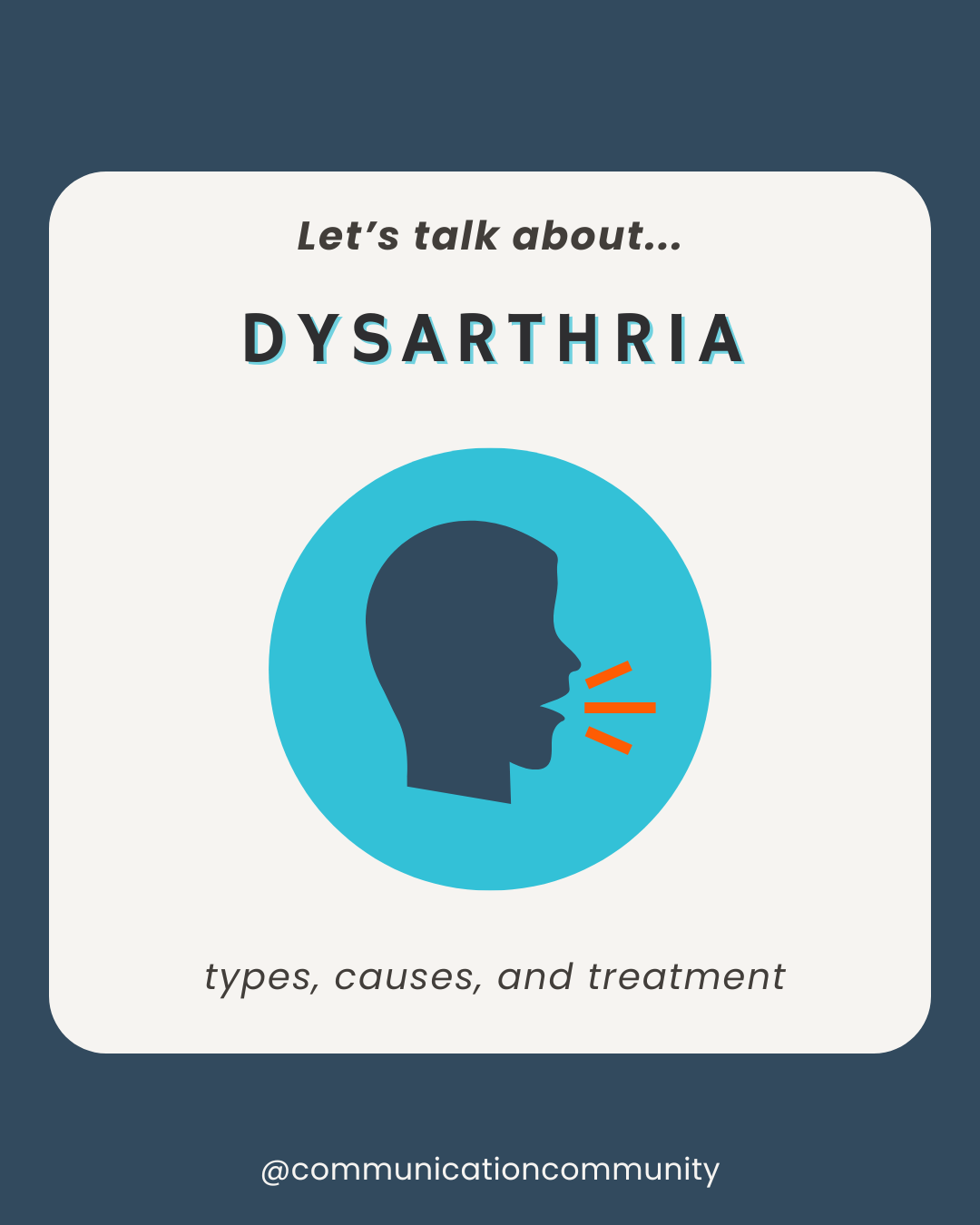
What is Dysarthria? (7 Types, Causes, and Treatment)

Summer Short Stories with WH Comprehension Questions for ELA/Speech Therapy
Subscribe to new posts., subscribe to be notified of new content and support communication community, help keep this site independent..

90 Questions to Ask a Speech Pathologist While Shadowing
Shadowing a speech pathologist can provide a wealth of information and real-life perspective on the field. But to make the most of this unique learning opportunity, knowing which questions to ask is key.
This article lists thought-provoking questions to help you dive deep into the experiences, challenges, and joys of a speech pathologist’s professional journey.
Whether your interest lies in the education required, day-to-day duties, or advancement opportunities, these questions will spark meaningful conversations and give you authentic insights into becoming a speech pathologist.
Table of Contents
Educational Background and Career Path
- What motivated you to choose a career in speech pathology?
- Can you walk me through your educational journey to become a speech pathologist?
- How did you decide on your area of specialization within speech pathology?
- What key courses or subjects were most beneficial for your speech pathology practice?
- Are there any additional certifications or degrees you pursued after your initial education?
- Looking back, is there anything you would have done differently in your education or early career?
- How important was hands-on experience during your studies, such as internships or practicums?
- What role did mentorship play in your professional development?
- Could you recommend any resources or books for someone just starting out in speech pathology?
- What are the ongoing education requirements for maintaining your certification in speech pathology?
- How do you stay updated with new research and developments in the field?
- Have you been involved in teaching or supervising students, and if so, what have you gained from this experience?
- Are there any particular areas of research that you find exciting or groundbreaking in speech pathology?
- What advice would you give to a student trying to secure their first position in the speech pathology field?
- Could you share a significant learning experience from when you were starting your career?
Day-to-Day Responsibilities
- What does a typical day look like for you as a speech pathologist?
- How many clients do you generally work with on an average day?
- Could you describe the types of documentation and record-keeping you are responsible for?
- How do you prioritize and manage your tasks throughout the day?
- In what ways do you collaborate with other professionals, such as teachers or doctors, in your daily work?
- What tools and technologies do you use regularly in your practice?
- How often do you reassess your clients’ progress and adjust treatment plans?
- How much time do you allocate for each therapy session, and how do you structure this time?
- Are there any common misconceptions people have about your day-to-day work?
- How do you ensure confidentiality and privacy in your practice?
- What are some routine challenges you face, and how do you manage them?
- Can you give an example of a particularly rewarding day at work?
- How do you handle unexpected situations or emergencies during your workday?
- What role does administration work play in your routine?
- How do you maintain a healthy work-life balance with the demands of your job?
Client Interaction and Therapy Techniques
- How do you build rapport and trust with new clients?
- Can you describe a few therapy techniques that you find most effective?
- How do you tailor therapy sessions to fit the individual needs of each client?
- What methods do you use to keep clients engaged and motivated during therapy?
- How do you involve family members or caregivers in the therapy process?
- Could you discuss how you handle difficult or uncooperative clients?
- What’s your approach to setting goals for your clients?
- How do you assess a new client’s speech and language needs?
- In what ways do you provide support beyond the therapy sessions?
- How do you measure progress, and what tools do you use for this?
- Can you give an example of a particularly successful client outcome?
- What strategies do you use for clients who are not making the expected progress?
- How do you address cultural and linguistic diversity in your practice?
- What’s your experience with group therapy versus individual sessions?
- How do you stay informed about the latest therapy techniques?
Challenges and Rewards of the Profession
- What do you find most challenging about working as a speech pathologist?
- Can you share a memorable challenge you’ve overcome in your career?
- How do you handle the emotional impact of working with clients who struggle significantly?
- What are some common barriers in speech therapy, and how do you address them?
- What do you think is the most misunderstood aspect of your profession?
- How do you advocate for your clients and the profession as a whole?
- What keeps you motivated during difficult times in your work?
- In what ways has being a speech pathologist been rewarding for you?
- How do you perceive the evolution of speech pathology in terms of addressing the challenges you face?
- How do you balance self-care with the demands of being a speech pathologist?
- What’s your greatest success story in your career so far?
- How do you deal with the financial and resource constraints that might affect your work?
- What has been the most fulfilling aspect of your role as a speech pathologist?
- How do you handle cases where progress is slow or not as expected?
- What advice would you give to someone dealing with burnout or uncertainty in this field?
Professional Development and Advancement
- How do you approach your own professional development as a speech pathologist?
- Are there any professional organizations you are a part of, and how have they contributed to your career growth?
- What opportunities for advancement exist within the field of speech pathology?
- Can you discuss any leadership roles you’ve taken on and what they entail?
- How does one transition into a more specialized area or niche within speech pathology?
- What types of professional networking do you find most beneficial?
- How have you incorporated research into your career development?
- What are some emerging areas in speech pathology that show promise for professional growth?
- How do you prepare for and approach performance evaluations in your workplace?
- What strategies do you recommend for continuing education and learning?
- Can you speak to the importance of public speaking or presentation skills in advancing your career?
- How do you set career goals, and how often do you review them?
- What role does mentorship play as you progress in your career?
- Can you share an experience where you took an initiative that led to professional growth?
- What advice would you give a speech pathologist looking to move into a more senior or managerial position?
Advice for Aspiring Speech Pathologists
- What qualities do you think are essential for someone considering a career in speech pathology?
- Looking back at your career, what piece of advice do you wish you had when you started out?
- What are some common misconceptions about the field that aspiring speech pathologists should be aware of?
- How should someone interested in speech pathology start gaining relevant experience?
- What are some effective ways to stand out in the graduate program application process for speech pathology?
- How important is it to network within the speech pathology community, and how should one go about it?
- What volunteer or shadowing opportunities would you recommend to someone exploring speech pathology?
- Can you describe any ‘red flags’ to be wary of when choosing a speech pathology program or mentor?
- What is your best advice for managing the workload during speech pathology training?
- How can someone best prepare for the clinical fellowship year?
- What extracurricular activities or pursuits do you believe complement speech pathology studies well?
- What should an aspiring speech pathologist look for in a potential job market or employment position?
- How can aspirants stay motivated and inspired throughout the rigorous studies and training?
- What resources should someone interested in speech pathology keep an eye on?
- What’s one thing you wish you knew about the realities of working as a speech pathologist when you were an aspiring professional?
Frequently Asked Questions
What is the purpose of shadowing a speech pathologist.
Shadowing a speech pathologist offers a real-world glimpse into the profession. It helps individuals gain first-hand experience, observe day-to-day activities, and learn about the different aspects of the job before committing to the educational path or career.
What should I look for when observing a speech pathologist during a shadowing experience?
When shadowing, pay attention to the speech pathologist’s interaction with clients, therapy techniques, documentation, and how they manage their time. Observe their communication style, problem-solving skills, and how they tailor sessions to meet each client’s needs.
Final Thoughts
By asking these targeted questions, you’ve peeked behind the curtain of speech pathology to understand the nuances of this career path. With this knowledge, you’re one step closer to pursuing a profession dedicated to helping others communicate and connect with the world around them.
So, take what you’ve learned, reflect on your aspirations, and step forward with confidence into a future where your voice will guide others to find theirs.
How useful was this post?
Click on a star to rate it!
As you found this post useful...
Share it on social media!
We are sorry that this post was not useful for you!
Let us improve this post!
Tell us how we can improve this post?

Bea Mariel Saulo
- WV App Login
- Site Search
- Report Templates
- Speech Helpers
- SLP Resources
- Top 10 Tips
- Getting an Eval
- Certified SLP
- How to Say the R Sound
- 0-18 Months
- 18-36 Months
- 18-30 Months
- 30-36 Months
- 10-11 Years
- Articulation
- Cleft Palate
- Phonological
- Dysphagia Causes
- Dysphagia Treatment
134 WH Questions for Speech Therapy Practice
As promised here are the words for your unlimited use .
If you know others who can use our lists ...
... please share this page using our site share buttons.
Explore Our Goal Reaching, Client Centered Products

SEE ALSO: Speech Therapy Activities for WH Questions
Wh questions.
- When do we sleep? (at night)
- When do we eat breakfast? (in the morning)
- When do we take a bath? (when we're dirty or before bed)
- When do we wear sunglasses? (when it's sunny outside)
- When do we put on a bandaid? (when we're cut or bleeding)
- When do we use an umbrella? (when it's raining)
- When do we need to wear a coat? (when it's cold outside)
- When do we wear a swimming suit? (when going to the beach/swimming)
- When do we wear a seatbelt? (when riding in a car)
- When do we turn on a flashlight? (when it is dark)
- When did you last see a doctor?
- When was the last time you went swimming?
- When was the last time you played at a friend's house?
- When did you go on your last vacation?
- When was the last time you went out to dinner?
- Who puts out fires? (firefighter)
- Who do we go see when we're sick? (doctor)
- Who takes care of animals at the zoo? (zookeeper)
- Who teaches kids at school? (teacher)
- Who delivers mail? (mailman / mailwoman)
- Who checks our teeth for cavities? (dentist)
- Who helps people in the store? (clerk)
- Who takes care of sick animals? (veterinarian)
- Who has a job of cutting people's hair? (hairdresser or barber)
- Who flies an airplane? (pilot)
- Why do we put gas in a car?
- Why does a giraffe have a long neck?
- Why do we mow the grass?
- Why do we wear sunglasses?
- Why do we take a bath?
- Why do we use an umbrella?
- Why does a bird have wings?
- Why do we have teeth?
- Why do we wear shoes?
- Why do children go to school?
SEE ALSO: The Best Free App for Speech Therapy

- What can we wear on our back? (backpack / book bag)
- What do bees make (that we can eat)? (honey)
- What do dogs like to chew on? (bones)
- What do we need when it rains (to keep us dry)? (umbrella)
- What do we wear on our feet? (shoes or socks)
- What do cows give us (that we can drink)? (milk)
- What do spiders build? (web)
- What is a lawn mower for? (cutting grass)
- What do we use for eating cereal? (spoon)
- What does a red light mean? (stop)
- What reason did you last see a doctor?
- What do you like to do best when you get home from school?
- What was the most fun you ever had?
- What is one gift you have received in the last year?
- What does your house look like?
- What is the most foolish/silly thing you have ever done?
- What is the funniest thing that has ever happened to you?
- What is the best meal you've ever eaten?
- What makes you feel happy?
- What is the nicest thing you've ever done for someone else?
- What did you watch on TV last week?
- What things make you laugh?
- What is the loudest noise you've ever heard?
- What do you usually think about just before going to sleep at night?
- What things do some people do that you do not like?
- Where does milk come from? (cows)
- Where do horses, pigs, and sheep live? (farm)
- Where do we put a hat? (on our head)/
- Where do we go to buy food? (store)
- Where do you sleep? (in a bed)
- Where do we see clouds? (in the sky)
- Where do we put toothpaste? (on our toothbrush)
- Where do fish live? (in water)
- Where do we plants seeds? (in the ground / dirt)
- Where does a bird lay eggs? (in a nest)
- Where can we play? (outside / playground)
- Where do shoes and socks go? (closet)
- Where do a king and queen live? (castle / palace)
- Where can we see monkeys, bears, and elephants? (zoo)
- Where do bats live? (caves)
- Where do we go to learn ABC's? (school)
- Where do we bake cookies? (kitchen)
- Where do we keep milk and butter? (refrigerator)
- Where can we sit? (chair / bench / seat)
- Where do we put peanut butter? (on bread / lettuce)
- Where was the last place you went swimming?
- Where was the last place you went out to dinner?
This list of functional words was professionally selected to be the most useful for a child or adult who has difficulty with this language principle.
We encourage you to use this list when practicing at home.
Home practice will make progress toward meeting individual language goals much faster.
Speech-Language Pathologists (SLPs) are only able to see students/clients 30-60 mins (or less) per week.
This is not enough time or practice for someone to strengthen their understanding of this important language concept.
Every day that your loved one goes without practice it becomes more difficult to help them.
SEE ALSO: The Best Books for Speech Therapy Practice

We know life is busy , but if you're reading this you're probably someone who cares about helping their loved one as much as you can.
Practice 5-10 minutes whenever you can, but try to do it on a consistent basis (daily).
Please, please, please use this list to practice.
It will be a great benefit to you and your loved one's progress.
Freebies, Activities, and Specials, Oh My! Sign up for Terrific Therapy Activity Emails
See Past Email Examples
Your information is 100% private & never shared .

Hi! We're Luke and Hollie.
We are both MS CCC-SLPs and fell in love while studying for our degrees. Since then we have done everything together - graduated, worked, and started a family. We spend most of our time with our family and the rest making this site for you.

Top Free Resources
Word vault essential.

# 1 Chronological Age Calculator

Popular Materials
All in one printable flashcards.

Multiple Meaning Word Mega Pack

Complete Articulation Word Search

New! 111 Articulation Stories

Teaching the Sound Books

Multi-Syllabic Words Flashcards

Apps to Save You Time & Help Your Clients
Articulation therapy + pirate adventures = awesomeness.

This App Will Get Your Kids Talking

Image Credits
Copyright © 2010 –
HomeSpeechHome.com | All Rights Reserved
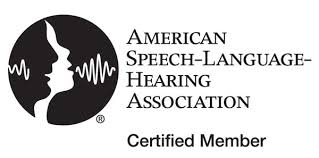
This website contains affiliate links, meaning if you buy something from them we may make some money (at no cost to you). By using our affiliate links, you are helping to support our site which is a U.S.-based, family-run small business :)
SUBSCRIBE TO STAY CONNECTED!
Speech Room News
Speech & Language Therapy Resources
SLP 101: Interviewing
08/26/2013 by Jenna 11 Comments

- State education departments (ie: Ohio Department of Education)
- State SLP organizations
- Contract Companies
- schoolspring.com
- School district websites (this tends to be the best in my own area, schools have enough applicants and don’t need to advertise outside of their own websites.)
- Often a state is divided up into Area Education Agencies or Education Service Centers
- Some states have a consortium where all schools post jobs
- Word of Mouth
Sample Interview Questions:
- Tell me about your background and experiences. Tell me why you chose to apply for our position.
- How do you establish relationships and maintain effective communication with parents?
- How do you incorporate the Common Core State Standards in your treatment and paperwork?
- How will you work with the team to determine transition goals for secondary students?
- How do you implement RtI?
- Talk about a difficult experience with a student exhibiting challenging behavior and what you did.
- If I came into one of your therapy sessions, what would I see?
- How do you plan to use technology in your therapy sessions?
- Talk about your planning process in establishing IEP goals and what you do when a student is not meeting those goals.
- How do you interpret standardized test scores in light of the state eligibility criteria?
- If you received a referral from a teacher, explain what you would do.
- What do you do in your evaluations so you can determine whether or not a student is eligible for services?
- If a teacher doesn’t follow through with your classroom recommendations what would you do?
- How do you do therapy with a group including fluency, artic, and language since students have to be grouped by grade? How do you differentiate therapy?
- What assessments are you familiar with?
- If you go wave a magic wand and change anything about IEPs, what would they be?
- How do you define educational impact?
- Tell about your experiences with assistive technology and alternative communication in the classroom.
- How do you differentiate between articulation disorders and phonological disorders?
- What assessments do you use for the early childhood population?
- What kind of innovative treatments approaches can you offer to our early childhood population?
- What aspects of this job will stretch your professional capabilities?
- How do you incorporate evidence based practices into your treatment?
- How is treating students in middle and high school different from treating those in the lower grades?
- Tell me about a time where collaboration was important.
- What is your experience with writing and implementation of IEPs?
- How do you keep children engaged in sessions?
- What is your experience working with differing populations? (ASD, severe CD, CAS)
- Explain your assessment plan for a student whose primary language is not English.
- Where do you see yourself in 5 years?
- What was your most challenging case?
- What procedure would you use in order to determine a starting point for a student with articulation delays?
- What would you say to a parent of a child who is requesting an increase in speech services or summer services but they clearly do not meet the criterion and they are asking you to tell the district their child needs it?
- Share an example of how you’ve collaborated with special and general ed colleagues to provide service for a student with communication needs.
- How do you determine how much special education service a student should receive?
- How do you support students in a general education environment?
- What methods do you use for data collection? How do you use that data?
- Tell us about your experience with alternative communication systems and assistive technology.
- What are the key components to a successful IEP meeting?
Questions You Should Ask:
- Questions you might want to ask in your interview
- What are the caseload averages in the district.
- How do you handle caseloads that grow during the year?
- What would my caseload make-up look like (age, disability, etc.)
- Do you use a weighted system (workload approach) so that students who more intense needs can be serviced effectively?
- I know the caseload limits in my state are XX, is there any policy in district that differs from that?
- How often do SLPs change assignments? Is there an expectations to remain in the position I first accept or do SLPs move between schools or groups? Will I be forced to switch assignments if I love what I’m doing?
- Besides direct assessment and intervention, what other responsibilities will I have? RtI teams? IAT teams? Building teams? etc.
- What is the policy for new teachers/staff (i.e different orientation)?
- What program do you use for IEPs and will I get training on it?
- What type of professional development opportunities are available specific to the needs of SLPs?
- Do you offer financial incentives for maintaining CCCs?
- I’m a Clinical Fellow, what type of supervision will you offer? Will my CF supervisor be available for more than the minimum requirements? Has he/she supervised before? Will we be located at the same building? Are they available for questions via phone/email whenever they come up?
- What is the policy on SLP absences? (Are SLPs expected to make up therapy time for sick days, IEP meetings, etc.?)
- How are the minutes of service written on IEPs (minutes per week, month, quarter)?
- What space will be available for me to use, and is it shared with other teachers/professionals?
- What are the guidelines for RtI in the district? For artic only? Language? Based on the SLP’s discretion?
- For other SLPs/teachers on the panel especially: What do you like about this district/building?
- If I am in more than one building, do I have dedicated space there, too?
- Is there any money budgeted for me for this school year if I get hired?
- Will I have a district iPad? Computer?
- Will I ever be told to see students at places other than the school buildings?
- Does the district have litigation with any of the families of students who would be on my caseload?
- How will I be evaluated? How often?
Portfolio If you’re a CF applicant, the people interviewing you will have less evidence that you’re a capable applicant. This might be the time that using a portfolio of your work is especially important. A few things I’d include in that portfolio:
- IEPs and ETRs or clinical reports
- Letters of Reference
- Examples of activities you created
- Examples of Data Sheets
- Copies of thank you notes from families or students
- Examples of RtI programs
- Examples of visuals you’ve created for students or teachers
Keep in mind that employers will be looking for professionalism, client confidentiality, and quality of work. The market for SLPs really varies from state to state. You might have areas that really need SLPs and other areas where the market it saturated. The best advice is to use practicing SLPs you meet during practicum to learn specific details for your area. Every job I’ve ever gotten started from word of mouth. You can’t beat those resources. Have you interviewed lately? How did you find the opening? What questions were you asked? What questions did you ask?
The SLP 101 series covers topics for school based therapists. Check out these other SLP 101 Topics:
Getting Started in the Schools :: Learning Targets :: Working Folders :: Scheduling :: Welcome Letter, Attendance, Billing :: Interviewing :: Salaries :: Common Core

Join the SRN newsletter!

I'm so glad you stopped by! If you'd like to keep up with the newest posts and get exclusive free downloads, please sign up for the newsletter! Your first freebie is ready as soon as you subscribe and confirm your email!
Success! Now check your email to confirm your subscription.
There was an error submitting your subscription. Please try again.
06/23/2014 at 11:13 pm
I am interviewing for a diagnostic/evaluation position for speech and language students.
Can someone reply with possible questions and answers that may be asked in the interview process.
07/16/2014 at 10:30 pm
Thank you for this article. I just went on an interview after 4 years on child care leave. I felt like I couldn’t remember anything I did in my speech days.
07/17/2014 at 2:01 pm
I’m glad I could help! Welcome back 🙂
07/01/2015 at 9:27 am
Good day, I am going in for my very first job interview as a Speech-Language Pathology Assistant. I recently graduated with my Associates Degree. I must say I have never felt so scared. I do not know what type of questions I should expect during the interview session. Also, how to approach these questions has kept me awake all night. I could really use some help. Thank you. ~Rosslyne.
11/03/2015 at 8:51 pm
Hi! I work with many SLPs all over the country and I have pointed them to this post many times to read over before their interview with a school district. Thank you for being so thorough!
08/10/2016 at 7:09 pm
This questions are “spot on.” I was interviewed recently and I think the interviewer used these same questions. Needless to say, now that I have read the questions I am better prepared for the second interview.
01/07/2017 at 10:39 am
Wow! I came here looking for some questions that grad school interviewers may ask for the SLP masters programs and got a thorough, in-depth look of what to expect when I finish grad school and I’m ready to kickoff my career as an SLP. Scary… yet exciting! I will make sure to refer to this blog whenever I get to that point ?
[…] Targets :: Working Folders :: Scheduling :: Welcome Letter, Attendance, Billing :: Interviewing :: Salaries :: Common […]
[…] Targets :: Working Folders :: Scheduling :: Welcome Letter, Attendance, Billing :: Interviewing :: Salaries :: Common […]
Leave a Reply Cancel reply
Your email address will not be published. Required fields are marked *
This site uses Akismet to reduce spam. Learn how your comment data is processed .
Keep up with the newest posts and get exclusive free downloads!
Speech Pathologist Interview Questions and Answers
Hero Images / Getty Images
- Job Interviews
- Skills & Keywords
- Salary & Benefits
- Letters & Emails
- Job Listings
- Cover Letters
- Career Advice
- Work-From-Home Jobs
- Internships
Types of Speech Pathologist Interview Questions
- General Speech Pathologist Interview Questions & Answers
Questions About Working in a School
Questions about working in a hospital/private clinic, more questions about speech pathology, tips for acing a speech pathology interview, questions to ask the interviewer.
As you prepare for an interview for a speech pathologist position, consider the questions you might be asked that specifically relate to speech pathology, as well as more general interview questions about yourself that you will likely be asked. Preparing to respond to both types of questions will ensure that you're confident and give strong responses on the day of your interview.
As a speech pathologist (also sometimes referred to as a speech-language pathologist or speech therapist), you help assess and treat children or adults with speech, language, and swallowing disorders. Often, this work occurs in schools or hospitals.
Before you head to an interview, consider the environment of the job. This will influence the questions you'll be asked. For instance, if the interview is for a role at a school, for instance, be prepared to share anecdotes about working with school-aged children.
When interviewing for a speech pathologist job, you can expect these kinds of interview questions:
General Speech Pathologist Interview Questions & Answers
Your interviewer will probably have some questions that apply to speech pathologists in general, to get an overall impression of your history, experience, motivation, and style.
Why did you choose speech pathology as a career path?
What They Want to Know: This question assesses your professional dedication and enthusiasm for your career.
Example Answer
When I was a kid, I had a bad stutter that was really embarrassing. I was fortunate though, that the speech pathologist at our elementary school was truly excellent. He was so much fun—and had so much patience—that our sessions were the high point of my school week. He gave me the tools I needed to largely resolve my stutter, and inspired me to become a speech pathologist.
More Answers: Tell me about yourself.
What areas of speech-language pathology interest you most?
What They Want to Know: The interviewer wants to know whether your interests would complement those of other team members. Plus, they're also looking to see if the areas that interest you are a good match for the services the organization offers.
I am most interested in fluency and fluency disorders, which is why I became a Board Certified Specialist in this area.
More Answers: What philosophy guides your work?
What is your familiarity with assistive technology?
What They Want to Know: Tech questions are a common element of most interviews. Be prepared to list the technologies you are competent in, even if this information is already on your resume.
I am well-versed in the therapeutic use of speech-generating devices, word prediction software, and picture boards.
More Answers: Interview questions about your abilities.
When interviewing for a position in a school, your interviewer will be looking for information about how you work with a variety of different people. They will ask questions relating to your interaction with parents and teachers, as well as with students.
Use your answers to demonstrate your knowledge of the school district’s mission, standards, and established goals, explaining how your own practices align with their own.
What clinical experience have you had in a school setting?
What They Want to Know: This question is straightforward. Simply describe your work history as a professional speech pathologist in the schools. If you are an entry-level candidate, focus on any in-service and volunteer experience you have.
I have five years of experience working with children grades K-6 in inner-city elementary schools, so I’m adept at partnering with parents and teachers to develop IEPs and in working with children both independently and in small group settings.
More Answers: What applicable experience do you have?
How do you incorporate Common Core goals into your speech therapy sessions?
What They Want to Know: This question may take some finesse to answer. Although some principals and administrators in certain school districts might believe that the Common Core State Standards should be universally implemented, the American Speech-Language-Hearing Association (ASHA) recommends that speech-language pathologists not base their IEP speech-language goals on the CCSS, since this would imply that students do not require special education. Should this question arise, carefully explain this policy and the rationale behind it to the interviewer.
The CCSS aren’t always relevant or appropriate when one creates and implements educational plans for special ed students. However, I do use them as a point of reference in IEPs when comparing a student’s competencies to the expectations placed upon their grade-level peers.
More Answers: How do you evaluate success?
Explain how you would assess a child who is a non-native English speaker.
What They Want to Know: School hiring committees may ask this question if they serve a large population of non-native English speakers, so be prepared to explain how you would handle language differences with your students and their parents.
I am bilingual in English and Spanish, so I’m able to work directly with students and their families who are native Spanish speakers. For other populations, I have experience sourcing and working with translators to communicate effectively.
More Answers: How are you different from your competition?
For a position at a hospital or a private clinic, your interviewer will be interested in determining if your skills, interests, and experiences will be a good fit for their patient population. They will also likely ask questions about how you would integrate your work with other therapists who may be treating the patients.
What experience do you have in working with people of other disciplines (OT, PT, etc.)?
What They Want to Know: Speech pathologists within clinical medical environments must be able to collaborate with other disciplines in creating comprehensive treatment plans for patients. Share an example of how you have actively contributed to clinical care teams.
During my 7-year tenure at ABC hospital, I worked daily with OTs, PTs, doctors, nurses, and physicians’ assistants to implement patient treatment plans within the stroke rehabilitative unit.
More Answers: Do you work well with other people?
What types of patients are you most interested in working with, in terms of age and type of disability?
What They Want to Know: There's no wrong answer here—but the hiring committee may be assessing their candidates based on their current needs and patient demographics. The safest approach is to be honest about your preferences, but also note your experience (if you have it) in working with a varied population.
During my master’s degree training, I performed multiple clinical rotations and am comfortable working with patients of all ages and diagnoses. However, I really like helping developmentally delayed patients—especially children—with swallowing disorders, because I know I can make an immediate improvement in their quality of life.
More Answers: Describe your work ethic.
What oral-motor programs are you familiar with?
What They Want to Know: Like tech questions, this example simply requires a list. If you know from the job advertisement that the employer requires competency in a program or maneuver you aren’t conversant with, express your willingness to pursue immediate training in its use.
I use the full complement of tongue, jaw, and lip exercises to help patients with their swallowing issues, including the effortful swallow, Mendelsohn maneuver, supraglottic swallow, and super-supraglottic swallow.
More Answers: Tell me about the trends in your profession and industry.
Other common questions about speech pathology a hiring manager might ask could include:
- What training and experience do you have with autism?
- What communication disorders do you have experience in working with?
- What is one recent trend in speech pathology that you think is important?
- How do you plan to stay current on your knowledge and skills?
- What is the difference between an articulation disorder and a phonological disorder?
- What are some of the formal assessment tools that you have used to evaluate cognitive patients?
- How do you assess success with a patient?
- How do you stay organized and manage multiple patients?
- What kind of strategies would you use with a child who stutters, and why?
- What kind of experience do you have with voice disorders?
- How proficient are you at MBSS?
Be prepared for both behavioral and situational interview questions, and you'll impress the hiring manager.
Behavioral Interview Questions
You may be asked certain behavioral interview questions about how you’ve dealt with clients or patients in the past. These questions are meant to gauge how, based on your previous behavior, you might psychologically or emotionally react when facing challenges in your new workplace. Here are a few examples:
- Tell me about some of your most challenging cases/patients and how you dealt with them?
- Describe one of your greatest accomplishments with a patient.
- Describe a time you had a child who wasn’t cooperating. How did you respond?
- What type of collaboration/teamwork have you been involved in?
- In what areas do you feel you need the most supervision? How do you handle criticism?
Situational Interview Questions
Situational interview questions, like behavioral interview questions, address work experiences. However, situational interview questions require that you explain how you would handle future practical situations, rather than past situations. Some examples include:
- Describe the steps you’d take to conduct an evaluation (both quantitative and qualitative).
- Imagine a parent comes to you and tells you that she is taking her child out of speech therapy because the child doesn’t like it. How will you respond?
- You are in a group setting with a child who stutters and a child with a receptive delay. How will you develop a therapy plan that will meet each child’s goals?
- How would you deal with a situation in which you suspect a case of child abuse?
An interview is a two-way street. That means it's important for you to ask questions during the interview too. This will help you get a sense of whether the role and the environment suit you. Here are some questions that can help you understand more about what your day-to-day work would be like in a position:
- What's a typical caseload for speech pathologists here?
- How are caseloads determined?
- Will I work exclusively in [school or healthcare facility X] or will I visit several [schools or facilities]?
- Will the focus be one-on-one work or group work?
- What kind of workspace do you provide for speech pathologists? Is this a shared space?
- Can you share demographic information on the population here?
Key Takeaways
- Be prepared to answer common interview questions, including general queries about your education and professional background and questions specific to the work environment (schools, hospitals, clinics) you are targeting.
- Learn as much as you can about the school district, hospital, or clinic you hope to work for, including their mission statement and the demographics of the clients they serve.
- Be ready to discuss the technologies, therapies, exercises, and other tools you use on a daily basis.
- Public Relations Interview Questions and Answers
- Speech Pathologist Resume and Cover Letter Examples
- Common Teacher Interview Questions and Best Answers
- Camp Counselor Interview Questions
- How to Answer Dental Assistant Interview Questions
- Occupational Therapist Interview Questions
- Investment Banking and Mortgage Banker Interview Questions
- Common Customer Service Interview Questions With Answers
- Funeral Director Job Interview Questions
- Sample Questions for Flight Attendant Interviews
- Delivery Driver Job Interview Questions
- Consultant Job Interview Questions
- Software Engineer Interview Questions
- Sales Interview Questions With Examples of the Best Answers
- Loan Officer Interview Questions
- Financial Advisor Interview Questions and Advice

20 Most Asked Speech Pathologist Interview Questions (With Answers)
Common Speech Pathologist interview questions, how to answer them, and sample answers from a certified career coach.

If you’re a speech pathologist, you know how important it is to make sure your patients get the best care possible. But before you can start helping others, you have to impress the hiring manager during your job interview.
It’s natural to feel nervous—but preparing for common questions ahead of time can help you feel more confident going into the interview. To help you prepare, we’ve rounded up some of the most common questions asked in interviews for speech pathologists. Read on and practice your answers before the big day!
- What is your experience with assessing and diagnosing speech, language, and communication disorders?
- Describe a time when you had to develop an individualized treatment plan for a patient.
- How do you handle patients who are resistant to therapy or have difficulty following instructions?
- Explain the importance of family involvement in speech pathology treatment.
- Are you familiar with the latest research on speech-language development and intervention techniques?
- Tell me about a time when you had to collaborate with other healthcare professionals to provide comprehensive care for a patient.
- What strategies do you use to help children overcome their fear of speaking in public?
- How do you assess a patient’s progress over the course of treatment?
- Describe your experience working with patients from diverse cultural backgrounds.
- What methods do you use to engage and motivate patients during therapy sessions?
- How do you ensure that all of your patients receive evidence-based treatments?
- Do you have any experience using assistive technology to aid in speech therapy?
- What strategies do you use to help patients improve their articulation skills?
- How do you approach teaching sign language to nonverbal patients?
- Have you ever worked with patients who have suffered traumatic brain injuries?
- What would you do if a patient was not making progress despite your best efforts?
- How do you handle difficult conversations with parents or guardians about their child’s diagnosis?
- What do you think are the most important qualities for a successful speech pathologist?
- How do you stay up to date on the latest developments in the field of speech pathology?
- Describe a situation where you had to manage multiple cases at once.
1. What is your experience with assessing and diagnosing speech, language, and communication disorders?
This question is used to gauge the level of experience and knowledge a potential speech pathologist has with diagnosing and assessing speech and language disorders. The interviewer wants to know if the candidate can accurately diagnose and assess the communication needs of their clients. The answer to this question should demonstrate that the candidate has a strong understanding of the assessment process, as well as the ability to accurately and confidently make diagnoses.
How to Answer:
When answering this question, you should provide specific examples of your experience with assessing and diagnosing speech, language, and communication disorders. Describe the process you use to assess clients and explain how you determine a diagnosis. Be sure to also mention any tools or methods you have used in the past, such as standardized tests or observation techniques. Additionally, discuss any research or studies you have conducted that relate to this topic. Finally, emphasize your commitment to accuracy and detail when making diagnoses so the interviewer knows you take the assessment process seriously.
Example: “I have extensive experience with assessing and diagnosing speech, language, and communication disorders. I use a variety of methods to accurately assess my clients’ needs, including standardized tests, informal assessments, observation techniques, and interviews with the client and their family. Additionally, I am well-versed in the latest research related to speech and language pathology, which helps me make accurate diagnoses. My goal is always to provide an accurate assessment and diagnosis so that my clients can receive the best possible treatment plan.”
2. Describe a time when you had to develop an individualized treatment plan for a patient.
Speech pathologists work with a variety of patients, including children, seniors, and those with disabilities. Each patient presents their own unique set of challenges and needs. This question allows the interviewer to get a sense of your approach to working with patients and understanding their individual needs. It also gives you a chance to showcase your ability to think critically and create effective treatment plans.
To answer this question, you should provide a specific example of when you had to create an individualized treatment plan for a patient. Explain the steps you took in creating the plan and how it was tailored to meet the needs of the patient. Describe how you collaborated with other healthcare professionals, such as physicians or physical therapists, to ensure that all aspects of the patient’s care were addressed. Finally, discuss the results of your treatment plan and any positive outcomes you saw in the patient.
Example: “When I was working with a patient who had difficulty speaking and communicating, I developed an individualized treatment plan tailored to his specific needs. This included breaking down tasks into smaller steps, providing visual cues and prompts, and offering rewards for completing tasks. I also used positive reinforcement when he made progress and provided encouragement whenever he felt frustrated or overwhelmed. My goal was always to remain patient and understanding while helping him reach his goals.”
3. How do you handle patients who are resistant to therapy or have difficulty following instructions?
Working with patients who have difficulty speaking or communicating can be a challenge. The interviewer wants to know how you handle these types of situations and how you’re able to adjust your approach to ensure the patient is able to make progress. They also want to make sure you’re able to maintain a positive attitude and remain patient with the patient.
You should come prepared to discuss how you’ve handled difficult situations in the past. Talk about any strategies you have used, such as breaking down tasks into smaller steps or using visual cues and prompts. You can also mention techniques you use to motivate patients, such as providing positive reinforcement when they make progress or offering rewards for completing tasks. Lastly, emphasize that you always remain patient and understanding with your patients—no matter how challenging the situation may be.
Example: “When I work with patients who are resistant to therapy, my main goal is to make sure they’re comfortable and understand the process. I like to break down tasks into smaller steps so that it feels achievable for them. I also use visual cues and prompts when necessary to help them stay focused and on task. Additionally, I always try to provide positive reinforcement when they do something correctly or have a breakthrough moment—it helps keep them motivated and engaged in their own progress. And above all else, I strive to remain patient and understanding of any issues they may be facing.”
4. Explain the importance of family involvement in speech pathology treatment.
Speech Pathologists work with families to ensure that their patients receive the best possible care and treatment. This question is designed to gauge your understanding of the role of the family in speech pathology and how you can work with them to create a successful treatment plan. The interviewer will want to know that you understand the importance of family involvement in the success of treatment and that you have strategies for working with families to ensure their participation in the process.
Explain that family involvement is essential for successful speech pathology treatment. Families are a vital part of the process as they can provide support, understanding, and encouragement to their loved ones receiving treatment. You should also discuss strategies you have used in the past to engage families in the treatment process such as providing education on the disorder or condition, creating positive reinforcement systems, and incorporating fun activities into therapy sessions. Finally, emphasize your commitment to working with families to ensure the best possible outcome for the patient.
Example: “I believe that family involvement is essential for successful speech pathology treatment. Families are a key part of the process, as they can provide support and understanding to their loved ones receiving treatment. In my experience, I have found that providing education on the disorder or condition is important in helping families understand how to best help their loved one. Additionally, positive reinforcement systems can be used to encourage progress, while incorporating fun activities into therapy sessions can make them more enjoyable for all involved. Above all, I am committed to working with families to ensure the best possible outcomes for my patients.”
5. Are you familiar with the latest research on speech-language development and intervention techniques?
Speech-language pathologists must stay up to date on the latest research and industry trends to be effective in their roles. They must also have the ability to communicate with various stakeholders, including patients, families, health care providers, school administrators, and other professionals. This question helps the interviewer understand the applicant’s knowledge of the field and their ability to apply it in practice.
To answer this question, you should first explain your familiarity with the latest research and industry trends. Provide examples of how you have stayed up to date on these topics, such as reading professional journals or attending conferences. Then, discuss how you have applied that knowledge in practice. For example, you can talk about how you used the latest research to develop a new intervention technique for a patient or how you communicated the latest findings to other professionals. Finally, emphasize your commitment to staying informed of the latest developments in the field.
Example: “I am very familiar with the latest research on speech-language development and intervention techniques. I stay up to date by reading professional journals, attending conferences, and networking with other professionals in the field. In my current position as a speech pathologist, I have used the latest findings to develop new intervention techniques for patients and communicate those findings to other health care providers. I am committed to staying informed of the latest developments in the field so that I can provide the best possible care to my patients.”
6. Tell me about a time when you had to collaborate with other healthcare professionals to provide comprehensive care for a patient.
Speech pathology is a collaborative field and requires professionals in this field to work with other healthcare professionals, such as doctors, nurses, physical therapists, and occupational therapists, to provide comprehensive care to their patients. By asking this question, the interviewer is looking to see how well you communicate and collaborate with other professionals, as well as how you are able to think critically and take a patient-centered approach to care.
Start by giving an example of a time when you had to collaborate with other healthcare professionals to provide comprehensive care for a patient. Make sure to explain the context, such as the type of patient and their condition, how you collaborated with other professionals, and what the outcome was. Then, discuss how your collaboration helped the patient receive better care and how it impacted their progress. Finally, emphasize the importance of communication and teamwork in providing quality care.
Example: “I once worked with a patient who had suffered a stroke and was having difficulty speaking. As the speech pathologist, I collaborated closely with the physical therapist to develop an individualized treatment plan that included both language therapy and physical exercises to help improve the patient’s motor skills. We also consulted with the physician to ensure that the treatment plan aligned with the patient’s overall health goals. Through this collaboration, we were able to provide comprehensive care for the patient and help them make significant progress in their recovery. This experience showed me the importance of communication and teamwork when it comes to providing quality care for patients.”
7. What strategies do you use to help children overcome their fear of speaking in public?
Speech pathologists often work with children who have difficulty speaking, communicating, or understanding language. This question is designed to assess the candidate’s understanding of the different techniques used to help children work through their fear of speaking in public. The interviewer wants to know if the candidate has experience working with these types of situations and how they’ve been able to help children overcome their fear.
Your answer should focus on the strategies you have used to help children overcome their fear of speaking in public. Talk about how you’ve worked with them to build their confidence and self-esteem, as well as techniques such as role-playing and positive reinforcement. Also discuss any resources or materials that you use to help children understand their fear and learn to cope with it. Finally, explain how you measure progress and success when working with these types of cases.
Example: “When working with children who have a fear of speaking in public, I first start by discussing the issue and helping them understand their fears. Then, I work on building their confidence through positive reinforcement and role-playing exercises. I also use materials such as books, videos, and worksheets to help them better understand the concept of public speaking and how to overcome their fear. Finally, I track progress using assessments and measurements that measure their comfort level when speaking in front of an audience. Overall, my goal is to help the child build their self-esteem and reach a point where they are comfortable speaking in public.”
8. How do you assess a patient’s progress over the course of treatment?
The interviewer wants to make sure you understand that progress in speech therapy is a process, not a destination. You must understand that progress is an individualized process that varies from patient to patient, and that it’s best measured over time. They want to make sure you can assess a patient’s progress in a meaningful way so that you can adjust your treatment plan accordingly.
Explain that you use a variety of assessments and tools to measure progress, such as pre- and post-treatment tests, standardized assessment measures, patient questionnaires, observations, and case studies. Explain that you also use qualitative methods such as interviews, focus groups, and surveys to get feedback from patients and their families about the effectiveness of treatment. Additionally, explain that you look at other factors like attendance rate, adherence to goals, and response to interventions when assessing a patient’s progress. Finally, stress that you take into account individual differences, such as age and language proficiency, when making decisions about how to assess a patient’s progress.
Example: “When assessing a patient’s progress, I use a variety of assessments and tools to measure progress, such as pre- and post-treatment tests, standardized assessment measures, patient questionnaires, observations, and case studies. I also use qualitative methods such as interviews, focus groups, and surveys to get feedback from patients and their families about the effectiveness of treatment. Additionally, I look at other factors like attendance rate, adherence to goals, and response to interventions when assessing a patient’s progress. I also take into account individual differences, such as age and language proficiency, when making decisions about how to assess a patient’s progress. This ensures that I’m able to get a comprehensive view of the patient’s progress and make adjustments to the treatment plan accordingly.”
9. Describe your experience working with patients from diverse cultural backgrounds.
Speech-language pathologists work with a variety of patients, many of whom come from different cultural backgrounds and may have different challenges when it comes to communication. It’s important that a potential hire is able to understand, appreciate, and work effectively with people from different backgrounds. The interviewer wants to make sure that you’re able to do this successfully.
This is a great opportunity to discuss your experiences with cultural diversity and how you have used those experiences to help patients. Talk about any specific cases or examples of where you’ve successfully worked with patients from different backgrounds, as well as any challenges that you faced in doing so. You can also mention any training programs or workshops that you have attended related to working with people from diverse backgrounds.
Example: “I have had the opportunity to work with patients from a variety of different cultural and linguistic backgrounds in my role as a speech-language pathologist. I have found that my approach to patient care must be tailored to the individual, and I have had to adjust my strategies and techniques to best meet their needs. For example, I recently worked with a patient who spoke Spanish as a first language, and I had to use visual aids and gestures to help him understand the concepts I was teaching. I also attended a workshop on working with patients from diverse backgrounds, which gave me a better understanding of how to better serve them.”
10. What methods do you use to engage and motivate patients during therapy sessions?
Speech therapy often requires long, repetitive exercises and activities with patients, and it can be difficult to keep them engaged and motivated. This question helps the interviewer understand your approach to this aspect of the job. It also gives you an opportunity to discuss any creative strategies you’ve used to keep patients engaged, such as using games, music, or technology.
Start by talking about how you assess each patient’s individual needs and interests before creating a treatment plan. Then discuss the strategies you use to keep them engaged, such as using visuals or incorporating music into therapy sessions. You can also mention any techniques you’ve used to motivate patients, like setting small goals for each session, providing positive reinforcement when they make progress, or offering incentives for completing tasks. Finally, talk about how you measure success in your treatments and what methods you have found to be most effective.
Example: “When I create a treatment plan for a patient, I always make sure to take into account their individual needs and interests. I find that engaging patients with visuals and music can be very helpful in keeping them motivated and focused. I also try to set small goals for each session and provide positive reinforcement when they make progress. Incentives can also be a great way to motivate them, like allowing them to pick a game to play or offering a small reward when they complete a task. I measure success by tracking their progress over time and evaluating the effectiveness of different strategies. I find that using a combination of methods is the most effective way to engage and motivate my patients.”
11. How do you ensure that all of your patients receive evidence-based treatments?
Speech therapy is a field heavily based on research, and hiring managers want to make sure that you are up to date on the best practices in the field. They want to know that you have the knowledge and skills to provide the most effective treatments for your patients.
This is a great opportunity to discuss the steps you take to ensure that your treatments are evidence-based. Talk about how you keep up with the latest research in the field, and any continuing education courses or seminars that you have taken to stay informed. You can also mention specific practices you use, such as conducting patient assessments before treatment and providing detailed progress reports after each session. Finally, emphasize your commitment to using only the most effective treatments for your patients.
Example: “I take my responsibility to provide evidence-based treatments for my patients very seriously. I keep up with the latest research in the field by attending conferences and taking continuing education courses. I also regularly consult with other professionals in the field to ensure I’m using the most effective treatments. In addition, I always conduct a thorough assessment of each patient before beginning any treatment, and I provide detailed progress reports following each session. My goal is always to provide the best possible care for my patients, and I strive to use evidence-based treatments to achieve that goal.”
12. Do you have any experience using assistive technology to aid in speech therapy?
Assistive technology is an important part of speech therapy and can be a valuable tool to help your clients improve their communication skills. This question is designed to assess your familiarity with the latest technologies available, as well as your willingness to explore and use them in your practice. Your answer should demonstrate that you are comfortable with using technology as part of your therapeutic process.
Your answer should demonstrate your understanding of the various types of assistive technology and how they can be used to support speech therapy. Talk about any experience you have with using these technologies, such as Augmentative and Alternative Communication (AAC), voice recognition software, or teletherapy platforms. If you don’t have direct experience, explain why you believe this type of technology is important for a successful speech therapy practice and what steps you would take to learn more about it.
Example: “I have experience using various types of assistive technology in my speech therapy practice. I regularly use AAC devices to help my clients communicate more effectively and I’m familiar with voice recognition software that can help with pronunciation and fluency. I’ve also used teletherapy platforms to provide care to clients remotely. I understand the importance of incorporating technology into my practice and I’m always looking for new ways to use it to improve my clients’ communication.”
13. What strategies do you use to help patients improve their articulation skills?
Speech pathologists help patients with speech, language, and communication issues. This question is designed to assess your knowledge of the strategies that you employ to help patients improve their articulation skills. Interviewers want to know that you have the skills to effectively and efficiently help your patients.
Your answer should demonstrate your knowledge of the strategies used to help improve articulation skills. You can mention techniques such as modeling, auditory bombardment, and drilling exercises. Explain how you use these methods in a way that is customized to each patient’s individual needs. Additionally, explain how you measure progress by setting goals and tracking their results. Finally, emphasize any other strategies you have used to help patients with articulation issues.
Example: “I use a variety of strategies to help my patients improve their articulation skills. For example, I use modeling to demonstrate proper pronunciation and auditory bombardment to help them become more familiar with the sounds of words. I also use drilling exercises to help them practice and perfect their pronunciation. Additionally, I set goals for each patient and track their progress over time to measure the effectiveness of my strategies. I also use visual aids and other techniques to help my patients understand and practice the correct articulation of words.”
14. How do you approach teaching sign language to nonverbal patients?
Speech pathologists are tasked with helping patients who are struggling with communication. In some cases, this means teaching them sign language so they can express themselves. This is a complex process, as it requires patience and an understanding of the different needs of each patient. By asking this question, interviewers are looking to see if you have the skills and experience to handle this kind of situation.
The best way to answer this question is by talking about your experience with teaching sign language. Explain what methods you have used in the past, such as visual aids or flashcards, and how you have adapted them for different patients. You should also explain the importance of patience and repetition when it comes to teaching sign language. Finally, talk about the progress that you have seen from your students and how rewarding it has been to see them succeed.
Example: “I approach teaching sign language to nonverbal patients with patience and understanding. I have found that visual aids such as flashcards and pictures can be very helpful in teaching the basics. I also like to use repetition and review to make sure that the patient is retaining the information. I have seen great progress with my patients, and it is incredibly rewarding to see them able to communicate their needs and wants. I believe that sign language can be a powerful tool for nonverbal patients, and it is my goal to help them reach their full potential.”
15. Have you ever worked with patients who have suffered traumatic brain injuries?
This question is designed to help the interviewer understand your experience with a particular type of patient. Speech pathologists often work with patients who suffer from traumatic brain injuries, and this question gives them an opportunity to understand your experience with this type of patient. Additionally, it gives the interviewer a chance to understand your approach to patient care and how you might handle similar cases in the future.
If you have worked with patients who have suffered traumatic brain injuries, be sure to explain the details of your experience. Talk about any unique techniques or approaches that you used to help these patients and how successful they were. Additionally, discuss any challenges you faced while working with these patients and how you overcame them. Finally, talk about what you learned from this experience and how it has helped you become a better speech pathologist.
Example: “Yes, I have worked with several patients who have suffered traumatic brain injuries. In my previous role as a speech pathologist, I worked with a variety of patients who had suffered from traumatic brain injuries. I developed a specialized approach to helping these patients, focusing on helping them to regain their basic communication skills and adjust to their new life. I had a lot of success with this approach, and I learned a great deal about how to effectively work with these patients. I also learned how to be patient and understanding, as many of these patients were dealing with difficult situations. I am confident that this experience has made me a better speech pathologist, and I am eager to continue to use my skills to help these patients.”
16. What would you do if a patient was not making progress despite your best efforts?
This question is designed to gauge your problem-solving skills and ability to think on your feet in difficult situations. Speech pathology requires a lot of patience, and it’s important for the interviewer to know that you can handle the occasional setbacks and devise creative solutions. This question also shows that you understand that progress doesn’t always come easily, and that you’re capable of coming up with a plan when faced with a difficult challenge.
You should start by emphasizing that you are committed to helping your patients reach their goals, and that you take a collaborative approach in order to help them get there. You can then discuss the steps you would take if a patient wasn’t making progress, such as re-evaluating the treatment plan or seeking out additional resources. It is also important to emphasize that you understand the importance of communication with the patient, and that you will work closely with them and their family to ensure they have all the support they need.
Example: “Patients in speech pathology often require a lot of patience and dedication, and it can be difficult when progress isn’t coming as quickly as expected. In such cases, I always start by re-evaluating the treatment plan, and making sure that the strategies we’re using are appropriate for the patient’s individual needs. I also make sure that I’m closely communicating with the patient and their family, so that they are fully informed and can provide input and feedback on the progress. I also make sure I’m staying up to date on the latest research and developments in the field, so that I can recommend any additional resources or treatments that might be beneficial. Finally, I always ensure that I’m providing a supportive and encouraging environment, so that the patient always feels comfortable and motivated to keep trying.”
17. How do you handle difficult conversations with parents or guardians about their child’s diagnosis?
This question is important because it assesses your ability to handle difficult conversations with empathy and tact. It also shows your ability to remain professional and provide parents and guardians with accurate, up-to-date information in a delicate situation. Being a speech pathologist requires a great deal of compassion and understanding, and this question helps an interviewer assess your ability to provide that.
When answering this question, you want to focus on how you approach difficult conversations and the strategies you use. You can talk about your experience in breaking down complex information into simpler terms that are easier for parents or guardians to understand. You can also discuss any methods you have used to provide support and guidance during these conversations. Additionally, it’s important to emphasize the importance of being honest and transparent with families while still maintaining a level of professionalism.
Example: “I understand that it can be difficult to receive a diagnosis that may have a long-term impact on a child’s life. When I have to have these conversations with parents or guardians, I strive to provide accurate, up-to-date information while also being compassionate and understanding. I always make sure to break down any complex information into simpler terms that are easier to understand. Additionally, I make sure to provide support and guidance to the family throughout the process. Ultimately, my goal is to be honest and transparent with families while still maintaining a level of professionalism.”
18. What do you think are the most important qualities for a successful speech pathologist?
Speech pathologists work with a variety of patients, from children to adults, and must be able to communicate effectively with each type. This question is designed to assess the candidate’s understanding of the role and the qualities that are necessary to provide quality patient care. The interviewer is looking to determine whether the candidate has the right skills and qualities to be successful in the role.
When answering this question, it is important to highlight qualities that are specific to the role of a speech pathologist. Some of the most important qualities for a successful speech pathologist include strong communication skills, empathy and compassion, patience, problem-solving ability, and an understanding of different cultures and backgrounds. Additionally, you should mention any relevant knowledge or experience you have in working with patients from diverse backgrounds.
Example: “I believe the most important qualities for a successful speech pathologist are strong communication skills, empathy, patience, and problem-solving ability. Communication is key in this role, as you’ll be interacting with patients from a variety of backgrounds. You must be able to convey your message clearly and effectively, while also being able to listen to patients and understand their needs. Additionally, it is important to be patient and compassionate when working with patients, as well as being able to think critically and problem-solve to come up with effective solutions for each individual patient’s needs. Lastly, it is important to have an understanding of different cultures and backgrounds, as this will help you provide better patient care.”
19. How do you stay up to date on the latest developments in the field of speech pathology?
Speech pathology is an ever-evolving field, and staying current on the latest research and best practices is essential for providing the best care to clients. This question allows the interviewer to assess your commitment to staying informed and dedicated to providing the best service.
Start by mentioning any professional organizations or conferences you’ve attended to stay up to date. You can also mention any online courses, webinars, or podcasts you listen to in order to stay current on the latest developments in speech pathology. Additionally, if you have ever published an article or research paper related to speech pathology, this is a great time to highlight it. Finally, emphasize your commitment to staying informed and learning more about the field so that you can provide the best care for your clients.
Example: “I stay up to date on the latest developments in speech pathology by regularly attending conferences and professional organizations related to the field. I also listen to podcasts and webinars to stay informed, and I’ve recently published a research paper on the use of technology in speech pathology. Additionally, I’m currently enrolled in an online course to learn more about new developments in the field. I strive to stay informed in order to provide the best care for my clients and I’m committed to continuing my education in the field.”
20. Describe a situation where you had to manage multiple cases at once.
Speech pathologists often need to juggle multiple cases at once, and it’s important for interviewers to know that you have the organizational and multitasking skills to handle it. They’ll want to know that you can prioritize and manage your time effectively while still delivering quality results. This question also gives you the opportunity to demonstrate your problem-solving skills and creativity in a busy and demanding environment.
When answering this question, it’s important to demonstrate your ability to prioritize tasks and manage multiple cases at once. Talk about a time when you had to juggle multiple cases and how you managed the situation. Describe what steps you took to stay organized, such as creating a schedule or setting reminders. Also talk about any creative solutions that you implemented in order to make sure all of your clients received the attention they needed. Finally, be sure to mention any successes or positive outcomes from managing multiple cases simultaneously.
Example: “I recently had to manage seven cases at once. To make sure I didn’t miss anything, I created a spreadsheet that outlined each case, the tasks that needed to be completed, and the due dates. I also scheduled regular check-ins with each client to stay on top of their progress. To ensure that all of my clients received the attention they needed, I made sure to focus on one case at a time and not get overwhelmed by the workload. I was able to successfully manage all seven cases, and I was thrilled to see the positive outcomes for each client.”
20 Most Asked Public Safety Officer Interview Questions (With Answers)
20 medical coordinator interview questions and answers, you may also be interested in..., 30 senior pharmacy technician interview questions and answers, 30 lacrosse coach interview questions and answers, 20 most asked network manager interview questions (with answers), 30 technology specialist interview questions and answers.
How To Ace The Top Five SLP Job Interview Questions

For many educational therapists, answering job interview questions is one of the most challenging aspects of the job search process. According to Business Insider , interviewees have only seven seconds to make a memorable first impression, which can understandably increase anxiety and distress.
As speech-language pathology (SLP) school staffing professionals, we realize that preparing for job interview questions can be nerve-racking and, to some, downright terrifying. Predicting the job interview questions that prospective employers will ask can be challenging–even for the most experienced job candidates. So, if the thought of presenting your elevator pitch makes you queasy or weak at the knees, don’t panic ! Our SLP school staffing experts are here to help.
If you’re ready to sharpen your skills to ace your upcoming Speech-Language Pathology job interview, then keep reading! We want you to discover how to answer the top five Speech-Language Pathology job interview questions to impress your hiring manager –and ultimately, land the perfect new opportunity in pediatric therapy services .
The Top Five Job Interview Questions for Speech-Language Pathologists: ANSWERED
As you may have discovered, no two job interviews are the same. Nevertheless, it would help if you already have rehearsed responses to these top five job interview questions when preparing for a Speech-Language Pathologist job interview.
1. Tell Me About Yourself.
Interviewers ask this standard (and often dreaded question) for three reasons. First, they’re hoping to break the ice and help you feel more relaxed. Second, they want to find out more about your professional background and previous work experiences. Lastly, they’re determining whether or not you can articulate your thoughts in a precise, reasonable, and understandable way. When answering this frequently asked question, be sure to address any of these critical points:
- Why did you choose to enter the field of Speech-Language Pathology?
- How have your past work or practicum experiences made you the most qualified candidate for this role?
- With which population types or disorders have you previously worked?
- In which kind of work environments have you previously worked?
- Why did you apply for this particular Speech-Language Pathologist position?
- How will this role advance your career and achieve your professional goals?
While candidates can answer this seemingly open-ended question generally, prepare a focused answer tailored explicitly to the applied role. Avoid the temptation to ramble or overshare personal details, as the interviewer will not find your quirky personal habits, family anecdotes, or fifth-grade talent show performance impressive.
Instead, offer a compelling but concise explanation for why you’re passionate about the role/industry, as well as why you’re the best fit for the position. Discuss the communication disorders and populations you’ve worked with throughout your career. Emphasize the most m a rketable skills that distinguish you as an excellent job candidate, such as leadership, creativity, or critical thinking.
Here’s a definitive answer: “ I chose to enter the field of Speech-Language Pathology because of my lifelong passion for working with children and love for helping others develop important life skills. My professional background includes working in inner-city charter schools with low-income middle and high school students with dysarthria, aphasia, and fluency disorders. I applied for this role because I hope to continually develop my professional skills as a culturally responsive, service-oriented Speech-Language Pathologist to work with a vulnerable student population in an urban secondary school setting that values social justice, diversity, and inclusion.”
2. Why Did You Apply for This Position?
While it might seem counterintuitive, this question isn’t about you, so don’t focus too much on yourself. Instead, as once suggested by John F. Kennedy , “Ask not what… [can be done] for you — ask what you can do.” With this same mentality, emphasize what you can offer the company, not solely what the company can provide for you.
In a few sentences, get ready to pitch yourself to the employer and convey the value that you can provide the employer and the contributions you’ll make if hired. Realistically explain how you can benefit your colleagues, managers, and customers, and always consider what the hiring manager is seeking in a perfect candidate.
When preparing a response, ask yourself why the company is hiring now and what the company currently needs. Your answer should demonstrate that you’ve taken the time to thoroughly research the company , identify the company’s needs, and determine how your candidacy will address these deficiencies.
Lastly, discuss what inspired you to pursue a career in Speech-Language Pathology and why you’re interested in getting hired. If you’re particularly zealous about working with bilingual elementary students, share how your passion compelled you to apply to this specific role or school. If possible, connect your love for the field of Speech-Language Pathology to the position’s responsibilities, purpose, and work environment.
Here’s an excellent response: “As a bilingual Speech-Language Pathologist who is passionate about working with Arabic-speaking students and their families, I seek the opportunity to work with multicultural learners in a high-needs, urban elementary Title 1 school setting. Throughout my professional work experiences as a Speech-Language Pathologist fluent in Arabic, I’ve developed a conviction to contribute my professional skills, credentials, and expertise to work with a culturally diverse student population, which is a long-established area of personal and professional interest.”
3. What Are Your Greatest Strengths?
How you respond to this popular job interview question can persuade your interviewer that you are (or aren’t) the perfect candidate for the role. So, when preparing your response, identify the most marketable and unique strengths that will distinguish you from every other candidate and demonstrate that you’re capable of meeting–and exceeding–the role’s expectations.
Ideally, your top professional strengths should correspond directly with the employer’s hiring needs and job description. Remember to specify your relevant skills and competencies, credentials, and previous work experiences corresponding with the applied position.
If you’re a humble person who is generally uncomfortable showing off or speaking about your achievements, try not to approach this question with too much modesty. Instead, get used to candidly discussing the attributes that distinguish you as the perfect candidate.
Try not to come across as excessively self-confident or even arrogant, which can be a red flag to some employers. By acting too self-reliant, you may inadvertently send the message that instead of being a team player who works well with others, you’d instead work solo and stand in the spotlight–alone .
Finally, thoughtfully select two or three character traits representing your unique strengths–not those of a friend or family member. Instead of creating a laundry list of universal qualities that you can apply to essentially anyone, pinpoint which personalized attributes set you apart as a distinct (and the best) candidate for the position.
Here’s a winning response: “My greatest strength is the fifteen years of professional experience I’ve accumulated throughout my career as a Speech-Language Pathologist. I have countless experiences teaching students from various ethnographic, socioeconomic, cultural, and ethnic backgrounds at a total of six public, private, virtual, and charter schools. Throughout my career, I’ve worked with many types of students, from children who are emotionally disturbed and consistently misbehave to those who flourish academically and socially without adult supervision. While completing my graduate coursework as a doctoral student at Premier University, I’ve received a formal education to utilize culturally responsive teaching methods to create an inclusive, welcoming learning environment for all of my students. By consistently participating in annual training and development programs as a board member of the American Speech-Language-Hearing Association , I’ve undergone professional training to strategically utilize creativity, unorthodox methods, and experimental practices when planning lessons and classroom activities for my students.”
4. What Are Your Most Significant Weaknesses?
Interviewees often answer this classic question by indicating a strength disguised as a weakness, such as perfectionism or overworking . However, job applicants frequently overuse these clichéd responses. By utilizing this strategy, you face the risk of sounding canned–or worse, even dishonest.
Despite what you may have heard before, tactful and well-planned transparency about actual professional deficiencies can help, rather than hurt, your chances of dazzling the interviewer–and eventually, landing the job.
While keeping your response positive and growth-oriented, honestly relay a few of your professional (not personal) weaknesses in a work environment. Describe a past professional situation where you have acknowledged your shortcomings and taken the necessary steps to improve, which indicates both self-awareness and the ability to take self-initiative.
For example, suppose you lack the skills or knowledge to work with severely autistic students. In that case, you can discuss how you’ve recently enrolled in university courses or completed professional training programs for special education teachers of autistic students. After explaining and rationalizing your weaknesses, positively conclude your response by reminding the interviewer of your major strengths.
Here’s an ideal answer: “As a self-sufficient worker, I tend to be extremely self-reliant, so when I’m working on a team and must depend on my colleagues to complete an assignment, I admittedly find it difficult to stay patient at times. Because I would like to practice cultivating patience and collaborating more effectively with my colleagues, I’ve taken the self-initiative to attend team-building training sessions and professional collaboration workshops beyond my regularly scheduled work hours. While previous employers have praised my ability to work well independently with little supervision, I also understand that it’s important to trust my colleagues to complete tasks. That’s why at work, I’ve been practicing being more collaborative and reaching out to others for assistance as needed.”
5. Do You Have Any Questions for Me?
Always answer this question in the affirmative. At this point in the interview, we understand that you may want to respond with “no” to conclude the conversation and leave a stressful situation quickly.
However, arriving without having any job interview questions prepared for the interviewer would be a significant lapse of foresight. So, as a golden rule of interviewing, always come prepared with at least three questions for your interviewer.
Interviewers usually ask this seemingly optional but pivotal question before the interview closes, providing the valuable chance to demonstrate that you’ve taken the initiative to research the school or organization and are eager to learn more. The intent is to present yourself as a caring professional by sincerely conveying your enthusiasm for the school or organization, the job, the students, the faculty and staff, and the learning community.
Aside from convincing your interviewer that you are the perfect candidate for the job, remember that interviews are also a way to learn about the employer and determine if you can envision yourself working at that particular organization. If not, you can more effectively spend your time and energy interviewing for other roles.
We highly suggest preparing a list of questions for the interviewer before the big day. If you’re unsure where to start, consider asking any of these interview questions recommended by our staffing experts:
- “Can you describe the culture at your school or organization?”
- “Can you describe the typical workload for Speech-Language Pathologists employed at your school or organization, and how are workloads determined?”
- “Does your school or organization emphasize individual or group work more?”
- “Can you describe the workspace provided for Speech-Language Pathologists at your school or organization?”
- “How does your school or organization evaluate Speech-Language Pathologists’ job performance?”
- “What are the top qualities that you seek in an ideal candidate for this role?”
Preparation Is the Key To Interview Success
A final word of advice to keep in mind is that it’s not about you during the hiring process. Instead, recall that it’s about the prospective employer and the company’s hiring needs. Interviewers are looking for a specific persona to fill a role, so highlight your unique strengths and show the interviewer who you are.
Remember that the hiring decision is ultimately up to the interviewer, so accept that your qualifications and performance alone might not necessarily determine the outcome. Hopefully, acknowledging your lack of control over the decision should alleviate some pressure rather than cause despair.
However, suppose you still find it impossible to calm your nerves. In that case, one foolproof method to overcome job interview stress is through ample preparation, so remember the adage: practice makes perfect . Repetition by practicing your responses to job interview questions can help you feel more comfortable and prepared to ace your upcoming Speech-Language Pathology job interview, so remember to practice, practice, practice !
So, you’ve spent hours researching the company, practiced your interview answers in front of the mirror, and recited your elevator pitch by heart. Now, you’re ready. Get in there, smile, and take a deep breath–it’s your time to shine.
Therapy Source: Your Premier Speech-Language Pathologist Staffing Solution
As seasoned therapy staffing experts with over twenty years of professional experience, our award-winning organization has earned an esteemed reputation as a leading provider of Speech-Language Pathologists and school-based professionals to hundreds of public, charter, and virtual schools nationwide. If you’re searching for Speech-Language Pathologist jobs, partner with us today, and you can access our two decades of professional industry experience.
Which interview tips have you found most helpful during your job search? Please share them in the comments below!
Want to get activities and apps sent to your inbox monthly? Visit txsource.com/newsletter .
If you’re looking for a therapy or teaching job, check out our current openings: https://jobs.txsource.com .
Related Posts
In the realm of speech therapy, the collaboration between therapists and a child’s primary support system—parents and caregivers—is pivotal. This partnership not only enhances the child’s progress but also fosters a supportive environment conducive to continuous learning and development. Engaging parents and caregivers in speech therapy goals requires thoughtful strategies and effective communication, ensuring that […]
In the dynamic and often challenging environment of schools, the role of school psychologists is crucial in fostering student well-being. Their expertise not only aids in addressing learning difficulties and behavioral issues but also plays a significant role in promoting mental health, resilience, and a positive school climate. This guide aims to provide school psychologists […]
Even before the start of the COVID-19 Pandemic, teacher shortages were a substantial issue in K-12 schools nationwide. According to the National Center for Education Statistics, the number of new university graduates with a bachelor’s degree in education has decreased over the last several decades. While teaching was once considered a highly desirable profession for […]
Modal title
- Bipolar Disorder
- Therapy Center
- When To See a Therapist
- Types of Therapy
- Best Online Therapy
- Best Couples Therapy
- Best Family Therapy
- Managing Stress
- Sleep and Dreaming
- Understanding Emotions
- Self-Improvement
- Healthy Relationships
- Student Resources
- Personality Types
- Guided Meditations
- Verywell Mind Insights
- 2024 Verywell Mind 25
- Mental Health in the Classroom
- Editorial Process
- Meet Our Review Board
- Crisis Support
How to Find a Therapist
- Pros and Cons
- Will My Insurance Cover It?
- Is Online Therapy Secure?
- Relationships
Amy Morin, LCSW, is a psychotherapist and international bestselling author. Her books, including "13 Things Mentally Strong People Don't Do," have been translated into more than 40 languages. Her TEDx talk, "The Secret of Becoming Mentally Strong," is one of the most viewed talks of all time.
:max_bytes(150000):strip_icc():format(webp)/VW-MIND-Amy-2b338105f1ee493f94d7e333e410fa76.jpg)
Carly Snyder, MD is a reproductive and perinatal psychiatrist who combines traditional psychiatry with integrative medicine-based treatments.
:max_bytes(150000):strip_icc():format(webp)/carly-935717a415724b9b9c849c26fd0450ea.jpg)
- Finding a Good Match
Credentials
- Questions to Ask
- What to Expect
- Changing Therapists
- Next in Working With a Therapist Guide The Pros and Cons of Online Therapy
It’s important to find a good therapist with whom you feel comfortable. After all, you might talk about uncomfortable subjects—or even share things you’ve never told anyone before. So you want to work with someone who you will open up to and listen to. But there are so many options and choices out there that choosing a therapist can feel overwhelming.
Looking through an online directory may yield hundreds, if not thousands, of results. How do you pick someone to work with based on a short bio and picture? And if you are seeking help through an online therapy platform , how do you find a good fit when you may be speaking to a therapist primarily through a text-based or video chat?
Despite the apparent abundance of therapy options, treatment does not always feel as accessible as people might hope. Verywell Mind's Cost of Therapy Survey found that 53% of Americans in therapy over the prior three months experienced difficulties with getting appointments, finding a therapist, or finding in-network providers:
- 30% encountered a lack of availability or flexibility
- 27% had difficulty finding a provider who is taking new patients
- 24% had difficulty finding an in-network mental health professional
This article discusses some of the strategies that can help you narrow down—or expand—your options and pick a therapist who is likely to be a good match for you.
How to Choose the Right Therapist
The importance of a good match.
You may have received a suggestion to work with a particular therapist. Maybe a friend said, “This therapist helped me so much. You should call them and make an appointment, too.” But will that particular therapist be able to help you as well?
It depends. While the therapist may have great skills, their work with you will only be effective if you feel connected to them. So the same therapist that made a great impact on your friend may not work out well for you if you don’t feel that personal connection.
If you don’t like your therapist , or you’re concerned they may judge you, you aren’t likely to share your innermost thoughts and feelings or acknowledge unflattering behaviors.
If you don’t talk about these things, you might not get to the heart of your issues, and you might not gain the information you need to create positive change.
Your relationship with your therapist—often referred to as the "therapeutic alliance"—will most likely be a determining factor in how helpful therapy is for you.
The Therapeutic Alliance
Edward Bordin, one of the first researchers to examine the effect of therapeutic alliance, found that the alliance isn’t just made up of a bond between the therapist and the patient. It also has to do with agreement on the goals of therapy and the methods used to reach those goals.
The therapist and the patient need to like one another. They also need to feel there is good communication and a mutual willingness to work together.
The idea that the relationship between the therapist and patient is essential to good treatment has been reinforced by multiple research studies over the years.
An APA task force found that the type of therapy mattered less than this therapeutic relationship. Regardless of whether the therapist used cognitive behavioral therapy or psychodynamic therapy , patient improvement depended on how well the therapist and the patient got along.
"The therapy relationship makes substantial and consistent contributions to psychotherapy outcome independent of the specific type of treatment. The therapy relationship accounts for why clients improve (or fail to improve) at least as much as the particular treatment method," suggested the report.
Their report was based on multiple research studies showing that a therapeutic alliance plays an extremely important role in the process. They concluded that patients are more likely to change their lives when they feel supported by their therapist.
So they recommend that therapists continuously monitor interactions with their patients and check on them in terms of how they feel the process is going. Therapists are encouraged to work on improving the relationship if there appear to be communication issues or problems with trust.
Consider Who You Might Work Best With
Given how important your relationship with your therapist is to your well-being, some factors you might consider when looking for a therapist include:
- Gender : Do you think you'd feel more comfortable with a man, woman, or nonbinary person?
- Age : Do you want to work with someone older, younger, or around your age?
- Religion : Does it matter to you if the therapist has a particular religious affiliation?
You might feel like you’d connect better with an older woman. Or maybe you think you’d feel most comfortable speaking to a nonbinary person your age. It’s up to you to think about the type of person you imagine yourself opening up to.
Of course, you might have no idea who you want to speak to. That’s OK, too. You can usually just say you don’t have a preference if you’re asked.
You may be able to learn a bit more about the therapists you have to choose from. Keep in mind most therapists don’t make much of their personal lives public. But they will often share a few basic facts in their biographies, so you can try and find someone you might relate to before scheduling the first appointment.
Verywell / Bailey Mariner
Start Your Search
There are a number of different places where you can begin looking for a therapist. Some options include:
- Insurance directory : Check with your health insurance provider to see if they have a directory of therapists who accept your insurance .
- Recommendations from friends : Friends who have had great experiences with a particular therapist can be a great resource when you are looking for a treatment provider.
- Referrals from your doctor : Your primary care provider can also be an excellent place to start your search.
- Mental health organizations : Many mental health organizations maintain therapist directories listing professionals who are qualified to treat different conditions.
- Online therapist directories : You can also do an online search to find therapist directories where you can search based on education, treatment specialty , experience, and geographic location.
- Online therapy platforms : Many online sites also ask you to provide some basic information on what you’d like to address in therapy, such as anxiety, parenting issues, or substance use. Then, they will give you several therapists to choose from.
Get Help Now
We've tried, tested, and written unbiased reviews of the best online therapy programs including Talkspace, Betterhelp, and Regain. Find out which option is the best for you.
Therapists often have a lot of initials after their names, and it can be confusing to figure out what all those letters stand for. While you certainly don’t need to become an expert on mental health accreditations, it can be helpful to understand a bit about what the letters mean. Here are some of the more common ones.
- LCSW: Licensed Clinical Social Worker
- LMFT : Licensed Marriage and Family Therapist
- NCC : National Certified Counselor
- LCDC : Licensed Chemical Dependency Counselor
- LPC : Licensed Professional Counselor
- LMHC : Licensed Mental Health Counselor
- PsyD : Doctor of Psychology
- PhD : Doctor of Philosophy
- MD : Doctor of Medicine (in the case of a physician psychiatrist)
You may see some other variations as each state has its own licensing board and credentialing system. While it may seem a bit overwhelming at first, their exact license might not matter very much to you in the end.
What is important is to make sure that the therapist you choose is a licensed mental health professional and that they follow guidelines and a code of ethics. This is important if you are looking for therapy as opposed to life coaching. Life coaches are not required to have a specific degree, and they don’t have oversight by a governing board.
Licensed therapists must meet state qualifications, which may include the following:
- Passing a licensing test
- Passing a background check
- Performing a certain number of supervised hours
- Maintaining continuing education credits
While you may want to know what type of degree your therapist has, just know their credentials are proof that your state has given a stamp of approval that they are competent to provide services. What may be more important than their specific credentials is their areas of expertise .
Check their bio to learn more about the experience a therapist has in treating someone with concerns similar to yours. It can also give you some insight into how that person works and what sorts of treatments they provide.
You should also look for a professional who can provide the type of treatment that may be most beneficial for your specific condition, such as post-traumatic stress disorder (PTSD), social anxiety disorder (SAD), or obsessive-compulsive disorder (OCD).
Post-Traumatic Stress Disorder (PTSD)
A variety of mental health professionals are qualified to treat PTSD, including psychologists, licensed clinical social workers, and licensed professional mental health counselors. With only a few exceptions, these professionals cannot prescribe medication.
Psychiatrists and psychiatric nurses are also qualified to treat PTSD and are able to prescribe the medications that you may need.
The Department of Veterans Affairs suggests that it is ideal to work with a professional who regularly sees patients with PTSD. However, they note that primary care physicians and physicians assistants can also provide treatment and prescribe medications.
Social Anxiety Disorder (SAD)
Professionals qualified to treat social anxiety disorder include psychologists, psychiatrists, licensed clinical social workers, and licensed marriage and family therapists.
In addition to finding someone who has the necessary educational background, you should look for a professional who has experience with treatments such as exposure therapy , cognitive behavioral therapy , dialectical behavioral therapy , or acceptance and commitment therapy .
Obsessive-Compulsive Disorder (OCD)
As with other conditions, there are many professionals who are qualified to treat OCD including psychologists and psychiatrists. When looking for a therapist to treat obsessive-compulsive disorder, you should look for a professional who has training and experience with effective treatments such as cognitive behavioral therapy and exposure and response prevention.
Ideally, your therapist should have experience treating OCD specifically.
No matter what condition or concern you have, focus on finding a professional who has experience treating the issue and is trained in evidence-based treatments for your condition.
Questions to Ask a Therapist Before You Meet
During a consultation, you might ask some questions about how they conduct treatment and how they help people who are looking to reach goals similar to yours. You can even ask how they help their patients get comfortable with therapy.
Some therapists will offer a free brief consultation over the phone prior to scheduling your first appointment. This can allow you to get to know the person a little and ask any questions you may have.
If you’re given this opportunity, take it. While a phone call won’t guarantee you’ll be able to tell whether the therapist is a good match, it may help you narrow down your options.
Studies show that a therapist’s ability to show warmth, genuineness, and empathy is key to their ability to form a therapeutic alliance. So consider this your chance to conduct a brief interview with the therapist and see how you feel about their responses.
What to Expect During Your First Appointment
During an initial session, your therapist will likely explain how therapy works, provide you with information on confidentiality, and ask you to sign some forms.
From there you may be interviewed about the problems or symptoms you are experiencing and your goals for treatment. The therapist may ask questions about your childhood, your medical history, your family, and any history of past mental health treatment.
Your answers can help them gain an overall view of you. And it will help them work with you on establishing goals. Your experience during the initial therapy appointment may vary a bit, depending on whether you’re meeting online or in person.
Another factor is whether you’re paying cash or billing your insurance company. A therapist may need to conduct a thorough assessment that helps them identify whether you meet the criteria for a mental health diagnosis . Most insurance companies only cover mental health treatment for people who have been diagnosed with a mental illness.
On the other hand, if you’re meeting with an online therapist and want to address a specific issue (like a conflict you’re having with a spouse), the therapist may focus mostly on that topic as opposed to trying to gain a broad view of your life.
Remember, the first appointment is a great time to ask any questions about the therapy process as well.
What to Do If Your Therapist Isn’t a Good Match
Whether you realize your therapist isn’t a good match for you during the first appointment, or you begin feeling like you aren’t being supported well into your therapy process , you can always change therapists.
If you’ve been working with your therapist a while, you may want to talk about the fact that you aren’t feeling a connection. This can feel a bit awkward or uncomfortable, but therapists have these conversations often. If there’s an issue that can be addressed, they may want to address it with you.
They might also help you find someone who is better suited to your needs and refer you to that person.
If you don’t feel comfortable talking to your therapist directly about wanting to see someone else, you can still change therapists. If you’re seeing someone at an agency, you can ask the receptionist or someone else in the office to transfer you to a new therapist.
Changing Your Online Therapist
If you’re seeing a therapist online, you can request to change therapists there too. Sometimes, a few clicks of a button is all it takes to transfer you to someone new. You may be asked to give some feedback on why you and the other therapist weren’t a good match. And you might also be able to provide additional input about what type of therapist you want to work with in the future.
Don’t feel bad if you change therapists. Sometimes, for one reason or another, the therapist and the patient just don’t click. And that’s OK. It’s important to make sure you work with someone that you feel comfortable with, so you can get the most out of treatment.
A Word From Verywell
It’s important to find the best therapist for you and your needs. And while the process of finding someone you think you can connect with may seem a little daunting, it’s well worth the effort.
When you find someone you feel comfortable talking to, and you feel as though that person is invested in helping you grow and change, you’re much more likely to benefit from therapy.
Bordin ES. The generalizability of the psychoanalytic concept of the working alliance . Psychotherapy: Theory, Research & Practice . 1979;16(3):252-260. doi:10.1037/h0085885
Norcross JC. Conclusions and Recommendations of the Interdivisional (APA Divisions 12 & 29) Task Force on Evidence-Based Therapy Relationships . Society for the Advancement of Psychotherapy.
Goldfried MR. What should we expect from psychotherapy? . Clinical Psychology Review. 2013;33(7):862-869. doi:10.1016/j.cpr.2013.05.003
U.S. Department of Veterans Affairs. Types of therapists .
Lambert MJ, Barley DE. Research summary on the therapeutic relationship and psychotherapy outcome . Psychotherapy: Theory, Research, Practice, Training . 2001;38(4):357-361. doi:10.1037/0033-3204.38.4.357
By Amy Morin, LCSW Amy Morin, LCSW, is a psychotherapist and international bestselling author. Her books, including "13 Things Mentally Strong People Don't Do," have been translated into more than 40 languages. Her TEDx talk, "The Secret of Becoming Mentally Strong," is one of the most viewed talks of all time.

IMAGES
VIDEO
COMMENTS
One way to do this is to meet as a group with the therapy team. Before meeting with an SLP, jot down a list of questions and concerns. Take notes during the meeting. If anything is unclear, ask the SLP to clarify and write it down for you. Below are 10 questions to ask the SLP: What will the main communication challenges be?
Things like: Questions like these help you develop an overall picture of the therapist, their education, and experience in the field. 2. Fees. Nearly any therapy you attend will have fees or cost associated. The best thing to do is to ask the therapist what their fees are and if they accept insurance.
To become a licensed speech-language pathologist (SLP), one must complete at least a master's degree. Look at the letters after your speech therapist's name. They should include "MA, CCC-SLP" or "MS, CCC-SLP.". These letters mean they have a master's degree in either arts or sciences, and they received their Certificate of ...
To help you acknowledge and celebrate your child's progress, consider asking your speech therapist about specific signs or mini-milestones to watch out for along the way. This way, you can stay positive and motivated, knowing that even the little steps are meaningful and contribute to your child's development. 4.
As you begin to do ethnographic interviews, these three types of structural questions are good ones to learn first. Strict-inclusion questions help you gather information on the categories a person is using to organize information (e.g., kinds of memory problems Sarah experiences, kinds of activities Jay wants to participate in).
It takes practice and persistence. It's important to ask your speech therapist about short-term and long-term goals, and certain milestones that should be reached before graduating. In addition, these goals are not fixed. Depending on progress, they can evolve. Ask your therapist how each of these goals will be monitored and adjusted over time.
Contact us via phone ( 212-430-6800 ), email [email protected], or by filling out our convenient contact form. Improve your communication skills and unlock your potential with Open Lines ® Speech and Communication in New York today! Explore essential questions for your speech therapist. Gather insights to maximize your sessions and elevate ...
Discover the top questions to ask your speech therapist to ensure the best outcomes for speech and language development. Learn how to prepare effectively for therapy sessions. Prospect Kids, LLC | Blog (347) 921-3250 2102 Avenue Z Suite 304, Brooklyn, New York 11235 [email protected].
Below, I outline key questions to ask a speech therapist before you start any therapy program. These questions apply more to private practice, hospitals, and clinics than schools. Within the school system (early intervention, early childhood, and school), you may have less choice. 1. Logistics.
SpeechEasy. SpeechEasy is a combination of proven technology and techniques which can be used to reduce stuttering. Worn in one ear and similar in appearance to a hearing aid, SpeechEasy has helped thousands increase their ability to communicate effectively and confidently. The program that comes with every SpeechEasy is supported by a team of ...
4. What type of treatment(s) will my therapy involve? The goal of this question is to ask you SLP to identify some of the treatment practices that you should expect during the course of your therapy. This is a broad overview. Keep in mind, treatment is often highly-responsive based upon the needs and progress made by the patient.
Those are the basic questions clients have for speech-language pathologists at the beginning of care. But the answers to those questions may raise more questions, such as "How long will therapy last?". This post helps patients and caregivers understand the role SLPs play in the treatment of speech, language, and cognitive disorders.
Top 6 Questions to Ask Your Child's Speech Therapist. by Jacky G. Image source: learnthat.com. 1. Ask the speech therapist what his credentials are and where he received his education and training. Ask him how long he has been practicing and whether he has experience working with schools. Speech therapists should have a master's degree, if ...
Why SLPs Should Use Questionnaires (with sample questions) Parents, caregivers, and teachers should have opportunities to provide input about an individual's skills when a speech-language pathologist (SLP) is completing a comprehensive assessment. This post covers what types of questions SLPs can ask parents, caregivers, and teachers.
90 Questions to Ask a Speech Pathologist While Shadowing. Shadowing a speech pathologist can provide a wealth of information and real-life perspective on the field. But to make the most of this unique learning opportunity, knowing which questions to ask is key. This article lists thought-provoking questions to help you dive deep into the ...
10 Questions You Should Ask Your Future SLP Employer | SpeechEase. Interviews can be nerve-wracking! Don't spend all your time answering questions, though. Ask a few of your own. Interviews are a two-way street.
To help you put your best foot forward during the interview process, we've compiled a list of common speech therapist interview questions along with guidance on how to answer them effectively. Armed with this knowledge, you'll be well-prepared to articulate your passion and skillset for this life-changing profession. 1.
Here are some example users you can use to help prepare for your SLP interview: 1. Describe your greatest accomplishment with a patient. Your interviewer may ask you this question to learn about your experience, values and enthusiasm for your work. Describing something you're proud of can reveal a lot about your priorities and methods.
SEE ALSO: The Best Books for Speech Therapy Practice We know life is busy , but if you're reading this you're probably someone who cares about helping their loved one as much as you can. Practice 5-10 minutes whenever you can, but try to do it on a consistent basis (daily).
SLP 101 is a series to help you get started if you're new to the field or new to a position as a speech language pathologist in the schools. Up first, I want to give you some ideas and tips for interviewing to be a speech language pathologist. You might be a stellar clinician but that won't matter if you can't land your dream job!
What They Want to Know: This question assesses your professional dedication and enthusiasm for your career. Example Answer. When I was a kid, I had a bad stutter that was really embarrassing. I was fortunate though, that the speech pathologist at our elementary school was truly excellent. He was so much fun—and had so much patience—that our ...
4. Explain the importance of family involvement in speech pathology treatment. Speech Pathologists work with families to ensure that their patients receive the best possible care and treatment. This question is designed to gauge your understanding of the role of the family in speech pathology and how you can work with them to create a ...
For many educational therapists, answering job interview questions is one of the most challenging aspects of the job search process. According to Business Insider, interviewees have only seven seconds to make a memorable first impression, which can understandably increase anxiety and distress.. As speech-language pathology (SLP) school staffing professionals, we realize that preparing for job ...
Insurance directory: Check with your health insurance provider to see if they have a directory of therapists who accept your insurance.; Recommendations from friends: Friends who have had great experiences with a particular therapist can be a great resource when you are looking for a treatment provider.; Referrals from your doctor: Your primary care provider can also be an excellent place to ...
Therapy isn't all about listening; it's a safe space to ask your therapist questions about your assessment, treatment and diagnosis. We want you to ask us questions so you can give informed ...